![]()
![]()
![]()
Group & Last Name Index to Full History:
A B C D E F G H I J K L M N O P Q R S T U V W X Y Z
Tracks are listed in chronological order by year, then alphabetically.
Listings do not reflect proper order by month or day: later oft precedes earlier.
Find on Page = F3. Not on this page? See history tree below.
Featured on this page loosely in order of first recording if not record release (as possible).
Names are alphabetical, not chronological, per year:
| 1960 | Kenny Barron Gap Mangione McCoy Tyner Larry Young |
| 1961 | Herbie Hancock Ronnie Mathews Jimmy McGriff |
| 1962 | Ran Blake Chick Corea Dave Grusin Keith Jarrett Eddie Palmieri Don Patterson |
| 1963 | Alice Coltrane Denny Zeitlin |
| 1965 | Carla Bley Lonnie Liston Smith |
| 1966 | George Duke Burton Greene Lonnie Smith Larry Willis |
| 1967 | Stanley Cowell Reuben Wilson |
| 1968 | Bobby Few |
| 1969 | Leon Spencer |
| 1970 | Earl Klugh |
|
Caveats in the employment of this page: 1. It descends in chronological
order by the year the artist or band is first found on a commercial record
issue (ideally) by year only, alphabetical thereat. One musician above
another doesn't necessarily translate to earlier issue unless the year
changed. 2. Though release dates are the aim with links to YouTube, some are
recording dates and may not be everywhere clearly distinguished. 3. Reissues
are used to represent originals without much discussion. |
||
| This page concerns musicians
who invaded jazz during the decade that the Beatles landed in America to
change the thrust of rock n roll to its very substance (their Merseybeat,
the Rolling Stones meanwhile addressing raw R&B). Documented here are
keyboardists who began recording in the sixties. Other instruments of the
period at Saxophone and
Various. Vocalists at
Modern Jazz Song. Jazz and
rock were two very different realms during the sixties. Jazz was alike classical in its
elite exclusivity, something of a rarified underground to those in the know. Who couldn't love the Beatle's best-selling single, 'She
Loves You' ('63), and countless else by that group and others? But the
classical and jazz genres held the high cards, and yet do, in composition
and
instrumental command. All those hysterical screaming girls in the sixties
couldn't hear
what they were missing when, only just prior, jazz left the Milky Way like, way out,
then began to implode via free
form. This page is thus populated with numerous black holes containing
information, dependent, be as may, upon interpreter. As for jazz and rock,
they would begin to merge in the latter sixties, bringing about the jazz
fusion that exploded in the seventies and has remained a major mix ever
since. This page is extended a bit to include but a touch of early jazz
fusion in its emergence. As for other jazz on this page in this sixties, the field of jazz became highly sophisticated
by that time. It was a little like chemistry: you had to be pretty hot
in the first place only to consider it for a career. The bar had gotten set
pretty high as of musical giants in the fifties. Amidst those more
experienced luminaries on
sax, horn, strings, piano and drums, who
began to populate the field of jazz in the sixties had to be capable of the real stuff,
having required several years of intent study. Howsoever, this page is
arranged differently than the others in this history. On other pages, jazz
musicians recording prior to 1960 are arranged by the instrument they played. But
on this page we've put together a giant orchestra of some of the more
prominent jazz musicians who first appeared on vinyl in the sixties
regardless of the instrument they played. Though most on this page are
instrumentalists, we've included a couple of vocalists as well. A good
number of jazz musicians well-known in the United States, but born
elsewhere, may be found at Sixties Jazz
International. It also occurs that some
musicians might have recorded earlier than one might think, thus to be found
in an earlier period according to their instrument. Sessions data this page
per
Lord's Disco.
|
||
|
Born in Philadelphia, PA, in 1943,
pianist,
Kenny Barron, was
younger brother to saxophonist, Bill Barron. He gigged with
Philly Joe Jones while in
high school student (much later to record with him on
Marion Brown's 'Soul Eyes' in
1978). After graduation Barron headed for NYC where he quickly acquired spots with
Roy Haynes (on whose 'Togyu' he
appeared in 1973) and
Lee Morgan.
Lord's disco finds him contributing as an arranger to
Yusef Lateef's 'The Centaur and the
Phoenix' in October of 1960. Lateef
would become a major figure in Barron's career in the early seventies,
participating in five more of Lateef's
LPs to 'The Doctor Is In ... And Out' in 1976. February 21 of 1961 found
Barron contributing to his brother's 'The Tenor Stylings of Bill Barron'.
Bill would be a major associate for decades, Kenny supporting Bill on eleven
more albums to 'Higher Ground' in 1989. Along the way Bill supported Kenny's
'Lucifer' on April 28, 1975. Another of the major characters in Barron's
career was tenor saxophonist,
James Moody, contributing to the
latter's 'Another Bag' on January 30, 1962. Barron and
Moody would interweave often into the
new millennium, Barron to surface on ten more of
Moody's albums to 'Moody 4A' and 'Moody
4B' in 2008.
Moody early recommended Barron to bebop trumpeter, Dizzy
Gillespie, his initial session with whom is thought to have been on an
unknown date in 1962 for titles that would get issued in 1981 on an album by
various called 'Europa Jazz'. Barron next joined
Gillespie for 'Something Old Something New' on April 25 of 1963,
sticking with
Gillespie through five more LPs to 'The Melody Lingers On' in October of
1966. Among the more important bassists with whom Barron worked through the
years was Ron Carter, they members
of Bill Barron's Brasilieros in 1962 or '63 for 'Bossa Nova: The New Sound
in Jazz from South America'. They visited again on February 17, 1967 for
Stanley Turrentine on
such as 'She's a Carioca', 'What Now My Love', et al.
Carter and Barron would record
together regularly to as late as Jamey Aebersold's 'Wayne Shorter' 1985.
They supported each other's projects along the way as well. From 'Yellow and
Green' in May of 1976 to 'Super Strings' in 1981 Barron contributed to nine
Carter LPs.
Carter backed Barron on the latter's
'1+1+1' [1,
2] in April of 1984, those duos on which album bassist, Michael Moore,
performs duos with Barron as well. Lord's disco shows a gap of five years
with no mutual sessions between Barron and
Carter until Mark Morganelli's
'Speak Low' recorded at the Birdland in NYC on June 13, 1990. Thence began
another long stretch of mutual sessions at fairly regular intervals into the
new millennium to as late as Steve Turre's 'Colors for the Masters' issued
in 2016. Along the way Barron supported
Carter's 'Friends' ('93) and 'Jazz: My Romance'. Barron had begun
working on his first LP as a leader in January of 1967, issuing 'You Had Better Listen'
in February of '68, co-led with trumpeter, Jimmy Owens. Wikipedia has him
leading or co-leading 51 albums to as late as 'Book of Intuition' issued in
2016, that a trio with Kiyoshi Kitagawa (bass) and Johnathan Blake (drums).
We slip back to April 23, 1967, for trumpeter,
Freddie Hubbard's, 'Fastball
- Live at The Left Bank' in Baltimore, Maryland. Wikipedia has Barron at
piano on seven of
Hubbard's LPs from 'High
Blues Pressure' ('68) to 'The Rose Tattoo' ('83). Barron had begun teaching
at Rutgers University in New Jersey ('73/'74) where he built tenure until
2000. He there recorded a duo with guitarist,
Ted Dunbar, in 1975 issued as 'In
Tandem'. Barron would release about twelve more duo albums with a variety of
musicians from pianist,
Tommy Flanagan ('Together' '78), to
double bassist,
Dave Holland ('The Art of
Conversation' '14). Barron received his BA
from Empire State College in NYC in 1978. His first album of solo piano
pieces was issued in 1981: 'Kenny Barron at the Piano'. Two more albums of
solos followed in 1982 ('Spiral') and 1991 ('Live at Maybeck Recital Hall
Volume Ten'). In 1982 Barron formed the quartet, Sphere, with
Charlie Rouse (tenor sax),
Buster Williams (bass) and
Ben Riley (drums) to record 'Four
In One' on February 17. That configuration remained the same through five
more albums to 1988.
Gary Bartz replaced
Rouse for 'Sphere' on October 4,
1997. Come March 9, 1986, for Barron's initial session with saxophonist,
Stan Getz, that coming to 'Voyage'.
Barron kept with
Getz through several more albums to 1991,
their last session thought to have been in March that year in Denmark for
live titles toward 'People Time' ('92). His duo with
Getz
on 'People Time' gained Barron his first Grammy nomination.
Eight more nominations would occur in the 21st century, though none
obtained. The new millennium also brought the Classical Jazz Quartet with
Stefon Harris (vibes/marimba), Ron Carter
(bass) and Lewis Nash (drums). From 2001 to 2006 that combo issued albums
addressing Tchaikovsky, Bach and Rachmaninoff. Barron was made an NEA Jazz
Master in 2010, considered the most prestigious award in the field.
Approaching 600 sessions to his credit in Lord's disco, among his more
recent releases was 'Kenny Barron & the Brazilian Knights' [1,
2] gone down in
June of 2012 for issue a year later. He joined Bill Mobley on 'Hittin' Home' in
spring of 2016. Having issued above fifty albums as leader or co-leader, his
most recent to this writing was 'Concentric Circles' [1,
2] recorded in Brooklyn
in March of 2017. Amidst the numerous others on whose recordings Barron appeared
over the years were Buddy Rich, Sonny Fortune, Chet Baker,
Chico Freeman, Joshua Breakstone, Sheila Jordan,
Red Mitchell,
Nick Brignola,
Helen Merrill and Dianne Reeves. Barron
has taught at Juilliard and is yet active touring
as of this writing. References: 1,
2,
3,
4.
Sessions: Fitzgerald: main,
multiple versions,
personnel;
JDP; Lord.
Discos: 1,
2,
3,
4. Interviews:
Molly Murphy 2009,
NEA 2010,
Anthony Brown 2011
(pdf),
multiple. Barron at Facebook.
Further reading: HMR Project;
Steve Holt.
Per 2014 below, all edits
were filmed live in Paris with
Dave Holland. Kenny Barron 1962 From 'Another Bag' James Moody LP All comps by Tom McIntosh All arrangements McIntosh Kenny Barron 1963 From 'Something Old Something New' Dizzy Gillespie LP I Can't Get Started/'Round Midnight Composition: Vernon Duke/Ira Gershwin Composition: Thelonious Monk Embellishment: Cootie Williams (out) Lyrics: Bernie Hanighen Composition: Margo Guryan/Arif Mardin Kenny Barron 1968 Composition: Jimmy Owens LP: 'You Had Better Listen' Trumpet/flugelhorn: Jimmy Owens Kenny Barron 1975 From 'Lucifer' Comps below by Barron Kenny Barron 1978 Composition: Barron LP: 'Innocence' Kenny Barron 1985 Composition: Dave Holland LP: 'Scratch' Bass: Dave Holland Drums: Daniel Humair Kenny Barron 1986 Tenor sax: Stan Getz Bass: Goerge Mraz Drums: Victor Lewis Kenny Barron 1989 Filmed with Stan Getz Kenny Barron 1994 Filmed concert Bass: Ray Drummond Drums: Ben Riley Kenny Barron 1997 Filmed live Bass: Ray Drummond Drums: Ben Riley Sax: Gary Bartz Kenny Barron 1998 Filmed live Tour: '100 Golden Fingers' Bass: Ray Drummond Drums: Ben Riley Kenny Barron 2000 Filmed live Bass: Ray Drummond Drums: Ben Riley Kenny Barron 2009 Filmed live Bass: Dave Holland Drums: Lewis Nash Guitar: Joe Pass Kenny Barron 2010 Filmed solo Kenny Barron 2012 Composition: Charlie Parker 1945 Live w Dave Holland Jazz à la Villette Filmed live Jazz à Vienne Duet with Mulgrew Miller Music: Billy Strayhorn 1939 Lyrics: John Latouche Kenny Barron 2013 Piano solo Issued 2013 Composition: Luiz Bonfá Note: The piano solo above was issued Nov 20 per 1, 2. The same title was released earlier on Feb 12 the same year per Nilson Matta's 'Black Orpheus' w Matta on bass and Alex Kautz on drums. Filmed concert Kenny Barron 2014 Live in Paris w Dave Holland Composition: Thelonious Monk 1947 Composition: Charlie Parker Composition: Barron Composition: Dave Holland
|
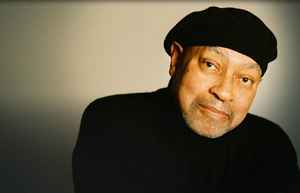 Kenny Barron Photo: SFJAZZ Source: Tom Meek |
|
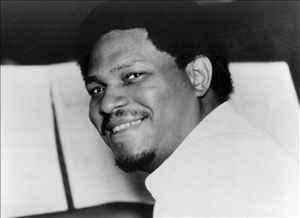 McCoy Tyner Source: All Music |
McCoy Tyner, pianist, was born in 1938
in Philadelphia, PA. His younger brother, Jarvis Tyner, is current Executive
Vice Chair of the Communist Party USA. As a youth McCoy knew
Bud Powell, also a resident of Philadelphia. He began tapping keys at age thirteen. He changed his name to Sulieman
Saud upon becoming a Muslim four years later. He is known to have gigged in
Philadelphia with
John Coltrane in the summer of '57 at the Red Rooster and
the House of Jazz (both now defunct). Tyner made his debut recordings in the
Sextet of
trombonist,
Curtis Fuller, on December 17 of '59
for the latter's LP, 'Imagination', issued
in 1960. Present on that was bassist,
Jimmy Garrison, who would play a
major role in Tyner's career, they both members of
John Coltrane's operation for the
next five years.
Garrison also contributed to titles
by Tyner like 'Today and Tomorrow' ('64) and 'McCoy Tyner Plays Duke
Ellington' ('65). We return to February of 1960 for Art Farmer's 'Meet the Jazztet'
issued that year. More recordings with
Fuller and
Garrison followed until Tyner
joined
Coltrane's quartet on June 10 of '60
for the private recording of 'Live at the Jazz Gallery 1960' issued in 2011.
Coltrane's projects were Tyner's main
locomotion for the next five years. Wikipedia lists 28 more issues worth of
material gone down with
Coltrane to 'Meditations' on November
23, 1965. Nine days after Tyner's first session with
Coltrane he joined trumpeter,
Freddie Hubbard, on June 19,
1960, for 'Open Sesame'.
Hubbard and Tyner partnered
numerously throughout the years in the support of various, such as
Coltrane, also putting down three
more albums for
Hubbard: 'Goin' Up' ('61),
'Ready for Freddie' ('62) and 'Blue Spirits' ('67).
Hubbard contributed to
Tyner's 'Together' in the summer of 1978 and '4 X 4' in 1980. Lord's disco
lists a last session together per the Great Quartet at the Hollywood Bowl in
June of 1982 with
Ron Carter (bass) and
Elvin Jones (drums). Those three
titles saw issue on the album by various, 'In Performance at the Playboy
Jazz Festival', in 1984. We back up to October 21, 1960, for
Coltrane's 'My Favorite Things' with
Elvin Jones at drums.
Jones and McCoy traveled through
Coltrane together, also backing each
other's projects.
Jones contributed to Tyner's first session as a leader on
October 24, 1960, for 'Lazy Bird' and 'In Your Own Sweet Way', those issued
in 1976 on the album by various, 'Chick Corea Herbie Hancock Keith Jarrett
McCoy Tyner'.
Jones participated in five of
Tyner's LPs from his debut,
'Inception', in January of '62 to 'Trident' in a trio with
Ron Carter in
Berkeley, CA, in February of 1975. It was
Jones' 'Illumination!' co-led by
Jimmy Garrison on August 8 of 1963. They co-led 'Love & Peace' in April of
'82. Lord's disco has
Carter and Tyner in a last session for tenor saxophonist, David Murray's,
'Special Quartet' in March of 1990. A tenor who played a greater role in
McCoy's career was
Joe Henderson, for whom we return to June 3 of 1963 for
the latter's debut LP, 'Page One'. Together supporting various projects on
occasion through the years, such as
Flora Purim's 'Encounter' ('77), McCoy
backed three more of
Henderson's LPs: 'Our Thing in September of '83, 'In 'n
Out' in April of '64 and 'Inner Urge' in November.
Henderson participated in
Tyner's 'The Real McCoy' in April of '67 and 'New York Reunion' in April of
1991. We slip back to April 29, 1964, for another important tenor, that
Wayne Shorter with whom Tyner joined
Freddie Hubbard on that date for latter's 'Ready for Freddie'. Together with backing other ensembles, such as
Lee Morgan's, they worked on
each other's projects beginning with
Shorter's 'Night Dreamer' on April 29
of 1964. Come 'Juju' on August 1 and 'The Soothsayer' on March 4, 1965.
Shorter contributed to McCoy's 'Expansions' on August 23 of '68 and
'Extensions' on February 9 of 1970. Lord's disco shows their last session
in NYC for titles unissued by Blue Note on October 13, 1970: 'The Creation',
'Because', 'Cee', 'Dee', and 'Effe'. We return to September 4 of 1964 for
tenor saxophonist,
Stanley Turrentine's, 'Mr. Natural' ('80). 'Rough 'n'
Tumble' ('66) was their first to see issue. In the next five years sessions
with
Turrentine would supply about five more of the latter's issues, sooner
or later, to 'Ain't No Way' on June 23 of '69.
Shorter's 'The Soothsayer' above
in 1965 included bassist,
Ron Carter, another of McCoy's
major confederates. Along with backing the projects of others, such as
George Benson,
Carter contributed to 14 of McCoy's albums from 'The Real
McCoy' on April 21 of '67 to 'Guitars' in September of 2006. Come another
important bassist on an unknown date in 1981, that Avery Sharpe for Tyner's
'La Leyenda de La Hora' ('The Legend of the Hour'). Avery hung with Tyner
through numerous albums to 'Infinity' featuring
Michael Brecker in April
1995. Along the way Tyner contributed to Sharpe's 'Unspoken Words' in
January of 1988. Lord's disco has their last mutual session in July of 1998
for 'McCoy Tyner and The Latin All-Stars'. Among others on whose recordings
Tyner can be found along his path of about 270 sessions are Julian Priester,
Hank Mobley,
Art Blakey ('A Jazz Message'
'64), EFX and
Michael Brecker ('Tales from
the Hudson' '96). Favoring smaller ensembles such as trios, Tyner is down
for 76 albums at Wikipedia from 'Inception', above, with
Elvin Jones in '62 to 'Solo' gone down on May 6 of 2007 in San
Francisco. That had been preceded by 'Guitars' in Sep 2006 w guitarists,
Bill Frisell, Marc Ribot, John Scofield and Derek Trucks. Also contributing
were Bela Fleck (banjo),
Carter (bass) and
Jack DeJohnette
(drums). Come 'Quartet' in December of 2006 with Joe Lovano (tenor sax), Christian McBride (bass) and Jeff Tain Watts (drums).
Amidst peripheral tasks as a musician, Turrentine has served on the panel of
judges for the Independent Music Awards on three occasions since 2007. Among
the heavyweights of jazz piano in the 20th century, as of this writing what was mccoytyner.com
is for some reason marked by Google as a deceptive phishing site and is
inaccessable. Tyner otherwise maintained a presence at Facebook
until his death in New Jersey on 6 March 2020. Other references: 1,
2,
3,
4.
Sessions: J-Disc (compositions also);
JDP; Lord;
Saul.
Catalogs: 1,
2,
3,
4.
Transcriptions: 1,
2,
3.
Reviews: 1,
2.
Tyner in visual media.
Interviews: Anil Prasad 2000;
Jazz Resource Center 2005;
Matthew Warnock 2009;
Anthony Brown 2011
(pdf);
various.
Awards:
NEA Jazz Master 2002;
other.
Instruction.
Further reading: analysis;
discussion; other profiles:
1,
2,
3,
4,
5.
McCoy Tyner 1960 Trombone: Curtis Fuller Composition: Curtis Fuller Fuller LP: 'Imagination' Recorded 17 Dec 1959 All arrangements: Fuller Trombone: Curtis Fuller LP: 'Images of Curtis Fuller' Recorded 5 & 6 June 1960 All compositions: Fuller All arrangements: Fuller LP by Farmer & Golson Composition: Tina Brooks Freddie Hubbard LP: 'Open Sesame' Tenor sax: Tina Brooks Trumpet: Hubbard Bass: Sam Jones Drums: Clifford Jarvis McCoy Tyner 1962 Album Recorded 10 & 11 Jan 1962 Bass: Art Davis Drums: Elvin Jones McCoy Tyner 1963 Album Recorded 19 Nov 1962 Bass: Henry Grimes Drums: Roy Haynes McCoy Tyner 1963 Newport Jazz Festival Music: Richard Rodgers 1937 Lyrics: Lorenz Hart For the musical 'Babes in Arms' McCoy Tyner 1965 Radio broadcast with John Coltrane McCoy Tyner 1972 Music: Richard Rodgers 1959 Lyrics: Oscar Hammerstein II For the musical 'The Sound of Music' Solo LP: 'Echoes of a Friend' McCoy Tyner 1974 From 'Asante' Recorded 10 Sep 1970 All compositions: Tyner McCoy Tyner 1976 LP: 'Fly with the Wind' Recorded January McCoy Tyner 1977 LP of trios in April with: Tracks 1-6: Bass: Ron Carter Drums: Tony Williams Tracks 7-12: Bass: Eddie Gomez Drums: Jack DeJohnette McCoy Tyner 1981 Filmed concert McCoy Tyner 1986 Filmed concert Bass: Avery Sharpe Drums: Louis Hayes Tenor sax: Hoe Henderson Trumpet: Freddie Hubbard McCoy Tyner 1989 Filmed with George Benson McCoy Tyner 1998 Filmed concert McCoy Tyner 2004 LP: 'Illuminations' Recorded 18 & 19 Nov 2003 Alto sax: Gary Bartz Trumpet: Terence Blanchard Bass: Christian McBride Drums: Lewis Nash McCoy Tyner 2009 Filmed in Germany McCoy Tyner 2010 Filmed live Bass: Gerald Cannon Drums: Eric Kamau Gravatt McCoy Tyner 2013 Filmed by NPR
|
|
|
Larry Young, organist, notably the
Hammond B-3, was born in 1940
in Newark, New Jersey. He began his career performing with R&B bands in his
hometown. He is thought to have first recorded on August 2, 1960, for the
Prestige label, resulting in the release of 'Testifying' that year. Joining
him on that were Thornel Schwartz (guitar), Jimmie Smith (drums) and Joe
Holiday at tenor sax on a couple tracks. Seven
days later he recorded 'Forrest Fire' with tenor saxophonist,
Jimmy Forrest.
Titles toward 'Young Blues' went down in November 1960, 'Groove Street' in
February 1962, 'Gumbo' in February 1963. Sessions in 1964 went toward the first two of four albums with guitarist,
Grant Green: 'Talkin' About!' released in '65 and 'Street of Dreams' on shop
shelves in 1966. Young's 'Into Somethin'' [1,
2,
3,
4]
had been recorded
on 12 November of '64. With Young at the Hammond B-3 was
Green,
Sam Rivers (tenor sax)
and
Elvin Jones on drums.
Jones backed Young again on
'Unity' [1,
2,
3,
4,
5,
6] on 10 Nov 1965 w
Joe Henderson (tenor sax) and
Woody Shaw
(trumpet). Young spread along 'Of Love and Peace' [1,
2,
3]
on 28 July of 1966 w Eddie Gale at trumpet, et al. 'Emergency!' was the first of three albums Young
put down with
Tony Williams, issued in 1969. He
strayed beyond the jazz realm a bit per 'Drone Blues' on
Jimi Hendrix' 'Nine to the Universe'
issued in 1980. Of 14 albums issued sooner or later with a somewhat
anchored recording date Young's last was 'Spaceball' sometime in 1976.
'The Magician' issued in '77 is of unknown date perhaps around that time.
Lord's disco follows him as far as November 16, 1977, for duets on Joe
Chambers' 'Double Exposure'. Young died in New York City at a young age when he ought
to
have had plenty of drive left in him on March 30 of 1978 of unclear causes, though
said to be pneumonia. Others on whose recordings Young can be found include
Etta Jones, Miles
Davis,
John McLaughlin and Buddy Terry.
References: 1,
2,
3.
Discos: 1,
2,
3,
4,
5, Lord (leading 17 of 66 sessions).
Compilations: 'Larry Young in Paris: The ORTF Recordings' ORTF Studios,
Paris, 1964-65 by Resonance 2016: 1,
2,
3,
4,
5,
6.
Further reading: Richard Brody. Larry Young 1960 Larry Young 1966 From 'Unity' Tenor sax: Joe HendersonTrumpet: Woody Shaw Drums: Elvin Jones Softly as in a Morning Sunrise Composition: Sigmund Romberg/Oscar Hammerstein II Composition: Woody Shaw Larry Young 1967 Composition: Larry Young/Sam Lewis Album by Grant Green: 'Street of Dreams' Guitar: Grant Green Vibes: Bobby Hutcherson Drums: Elvin Jones Larry Young 1968 Composition: Larry Young Album: 'Contrasts' Larry Young 1969 From 'Mother Ship' Recorded 7 February 1969Issued posthumously 1980 All comps Larry Young End 'Mother Ship' Composition: Tony Williams Album by Tony Williams: 'Emergency!' Recorded 26/28 May 1969 Larry Young 1975
|
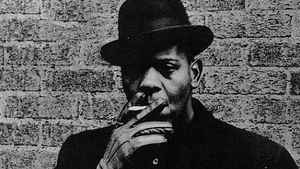 Larry Young Source: Concert Vault |
|
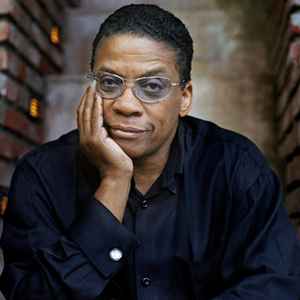 Herbie Hancock Source: Prog Archives |
Keyboardist,
Herbie Hancock, made his name before
jazz-rock fusion and funk jazz, but his pioneering combination of those made
him a hugely popular musician twice over who bloats concert halls to busting
with faithful fans to this day. Hancock was born in 1940 in
Chicago. He was the son of a meat inspector and secretary. Beginning
classical training at age seven, four years later Hancock performed Mozart's
'Piano Concerto No 2 in D Major' with the Chicago Symphony Orchestra. He
began attending Grinnell College in 1958 as a music and electrical
engineering major. He studied with Chris Anderson in 1960, also gigging with
saxophonist,
Coleman Hawkins around the time
that he
began studies with (opera) composer, Vittorio Giannini. It was about that
time that he made his debut vinyl with trumpeter,
Donald Byrd, in the latter's
Quintet with
Pepper Adams on March 2, 1961, that
'Out of This World (Vol 1)'. Vol 2 of 'Out of This World' from that session
got issued in 1988. Also going down in '61 were 'Chant', 'Hip Entertainment
Vol 1', 'Royal Flush' and 'Free Form' with
Adams out on the last. 'A New
Perspective' was taped in January of '63. 1964 saw 'Up!' and 'I'm Trying to
Get Home'. Also present in that December session for 'Free Form' in 1961 was
tenor saxophonist,
Wayne Shorter, replacing
Adams. Hancock and
Shorter would be close associates
into the new millennium backing numerous enterprises together, such Miles
Davis', when not supporting each other. Hancock first backed
Shorter for unissued Blue Note titles
on November 2, 1964: 'Witch Hunt', 'Dance Cadaverous' and 'Speak No Evil'.
He contributed to eight of
Shorter's albums from 'Speak No Evil'
on December 24 of '64 to 'Joy Rider' in 1987.
Shorter has participated in at least
thirteen of Hancock's albums from 'Man Child' in 1975 to 'The Imagine
Project' [1,
2,
3,
4,
5,
6 (interview
w HH),
7] in 2010. Hancock had recorded
his composition, 'Watermelon Man', on 28 May of 1962 at the Van Gelder
studio in New Jersey. One version of two saw issue on Hancock's first album aptly titled 'Takin' Off' [1,
2,
3].
All tracks were authored by Hancock who had support on that LP from
Dexter Gordon (tenor sax),
Freddie Hubbard (trumpet),
Butch Warren (bass) and
Billy Higgins on drums.
Hubbard also contributed to Hancock's 'Maiden Voyage' [1,
2,
3,
4,
5]
gone down on 17 March of '65 at Van Gelder w George Coleman (tenor sax),
Ron Carter (bass) and
Tony Williams (drums),
again all compositions by Hancock. Hancock recorded his initial
film score, 'Blow Up', in 1966. Another important figure had come along on
March 13 of 1963 for titles toward 'Seven Steps to Heaven', that Miles
Davis. Like his contemporary,
Chick Corea, it was with
Davis that Hancock moved from acoustic to electric keyboards. His first
instance of electric piano was with a Wurlitzer for 'Water On the Pond' gone
down on December 28, 1967, to get issued in 1981 on 'Directions'. His
initial recording with the Fender Rhodes piano was 'Stuff' on May 17, 1968,
for issue on 'Miles in the Sky' that year. Hancock would appear on above
twenty Davis LPs, the last recorded
(not issued) being 'Big Fun' in 1972. They would reunite in Paris in 1991
for 'At La Villette' released in 2001 on DVD. Having earlier earned his degree from Grinnell,
Hancock was there
awarded an honorary Doctor of Fine Arts in 1972. He formed the Headhunters
in 1973 toward the issue of 'Head Hunters' that year. Another session was
held at the Newport Jazz Festival on July 2 of '74. Hancock has also acted a
bit in television and film, beginning with the role of Gideon in 'The Wind
Bags' for the television series, 'Concrete Cowboys', with Tom Sellick in
1981. He has appeared in film as recently as 2017 per 'Valerian and the City
of a Thousand Planets'. Hancock is one of the very
few jazz artists in these histories who became involved with hip-hop,
releasing 'Future Shock' in 1983 complete with scratching on 'Rockit'.
Hancock has recorded prolifically, way up there with nigh 580 sessions per
Lord's disco. Among the host of others with whom he has laid tracks were
Sonny Rollins,
Lee Morgan,
George Benson,
Wes Montgomery, Burt Collins,
Joe Henderson, Jaco Pastorius,
Flora Purim, Alphonse Mouzon,
Dexter Gordon, Milton Nascimento,
Sarah Vaughan, Urbanator,
Antônio Carlos Jobim,
the Carnegie Hall Jazz Band and T.S. Monk. Hancock himself has released at least 41 studio albums, 12
live albums and five soundtracks. Among Hancock's latest issues were 'The
Imagine Project', 'Under Tokyo Skies' and 'The Latin Side of Herbie
Hancock', each in 2010. Hancock had won his first Grammy in 1984 for 'Rockit',
then built a nest with thirteen more. The most significant of those was in
2008 for his tribute to
Joni Mitchell in 2007,
'River: the Joni Letters', that garnering Album of the Year. Hancock has
also won four 'Keyboard Magazine'
Readers Polls in addition to six 'Playboy' Music Polls. 1986 saw an Academy
Award for his soundtrack, 'Round Midnight'. Other honors require a tall
building and box of spray paints, we listing only his NEA Jazz Masters Award
in 2004, the 'Downbeat Magazine' Readers Poll Hall of Fame in 2005 and
Kennedy Center Honors in 2013. Viking published Hancock's memoir,
'Possibilities' [1,
2,
3,
4],
in 2014, written w assistance from Lisa Dickey. Hancock is as active as ever, touring
internationally as of this writing. References: 1,
2,
3,
4.
Sessions: JDP; Lord (leading 148 of 603).
Discos: 1,
2,
3,
4,
5,
6,
7.
Visual media: IMDb;
TED;
select videography;
YouTube.
Internet: Facebook;
Myspace;
Twitter;
website.
Awards including 1 Academy and 14 Grammys: 1,
2.
Compositions.
Reviews: 1,
2,
3,
4. Interviews:
Mark Stryker 2005; NAMM 2006;
Andrew Bruss 2007;
Stefan Hentz 2010.
Archives.
Further reading: Greg Burk;
Michael Gallant.
Other profiles: 1,
2,
3,
4.
See also the UCLA
Herb Alpert School of Music *.
Herbie Hancock 1961 Album by Donald Byrd Baritone sax: Pepper Adams Trumpet: Donald Byrd Bass: Butch Warren Drums: Billy Higgins Herbie Hancock 1962 Album All comps by Hancock Herbie Hancock 1963 Album All comps by Hancock Herbie Hancock 1965 Album All comps by Hancock Herbie Hancock 1973 Album All comps by Hancock Recorded late 1972 Recorded Sep 1973 Herbie Hancock 1974 Filmed live Herbie Hancock 1976 Herbie Hancock 1978 An Evening with ... Chick Corea Album Piano duets w Chick Corea Herbie Hancock 1988 Filmed live Herbie Hancock 1994 Herbie Hancock 1995 Herbie Hancock 1996 Filmed with the New Standard All Stars Herbie Hancock 1998 Compilation 1972-88 Herbie Hancock 2005 Filmed live Herbie Hancock 2008 Filmed live Herbie Hancock 2015 With Dave Matthews Composition: Dave Matthews
|
|
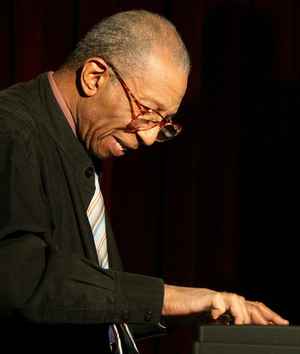 Ronnie Mathews Source: Jazz Lead Sheets |
Pianist,
Ronnie Mathews, was born in 1935 in
NYC, which automatically put him in a prime spot to begin his career as a
sideman. He is said to have backed
Art Blakey in the latter fifties,
later to record a couple albums with Blakey's
Jazz Messengers in '68. On
April 2 of 1960 he participated in 'Charles Persip and The Jazz Statesmen',
that issued in '61. On
February 14 of 1961 he recorded 'A Story Tale' with
Clifford Jordan and
Sonny Red. He recorded unissued tracks
for Savoy that June: ''Tis Autumn', '1239-A', et al. That October he laid tracks with the
Bill Hardman Quintet to be
released that year on 'Saying Something'. His initial name album was 'Doin'
the Thang!' [1,
2,
3,
4], recorded with
Freddie Hubbard in 1963, issued the next year.
Hubbard's name on Mathews' album ignited the engine, turbo added in '63
upon joining
Max Roach's outfit. Mathews issued relatively few albums as a
leader, his reputation made largely via the bands in which he
played, such as
Woody Shaw's in 1976 and the
Johnny Griffin Quartet from '78 to '82.
It was with
Griffin that Mathews first got mixed
with young bassist, Ray Drummond, among the more important of his partners
into the nineties. They had participated in 'Return of The Griffin' with
drummer, Keith Copeland, on October 17, 1978, in Berkeley, CA. Continuing
with
Griffin, they would record
numerously with other bands as well, such as Thomas Chapin's. Lord's disco
has Drummond backing four of Mathews' albums from 'Roots, Branches & Dances'
in 1978 to 'Dark Before the Dawn' in 1990. They've visited to as late as
'Tough Guys' in the Generations Band in 2008. Backing up to the seventies,
21 Sep of 1979 saw Mathews' hard bop 'Legacy' [*]
go down toward release the next year, that assisted by Ricky Ford (tenor
sax), Bill Hardman (trumpet), Walter Booker (bass) and
Jimmy Cobb at drums. During the eighties Mathews had toured with the United Nations Orchestra run
by Dizzy
Gillespie and
Freddie Hubbard. He wrapped
up that decade in 1989 with
Ed Thigpen, Claude Williams and
Frank Morgan. The early nineties found
him with Clifford Jordan again
before drummer, TS Monk (Thelonious Sphere Monk, son of
Thelonious Monk). Among numerous
others with whom Mathews had collaborated were Clark
Terry,
Benny Powell and
Jimmy Cobb. Mathews himself
issued fourteen albums per Wikipedia, the last put down in November of 2007:
'Fortuna', thought released in October of 2009. Mathews died of pancreatic cancer in Brooklyn
on June 28, 2008 [obits: 1,
2].
References: 1,
2,
3.
Sessions: JDP, Lord (leading 122 of 144).
Discos: 1,
2,
3,
4.
Per 1963
below, tracks are from Mathews' debut album with
Freddie Hubbard: 'Doin the
Thang!'. Ronnie Mathews 1961 Composition: Jack Lawrence Album by Clifford Jordan & Sonny Red: From 'Saying Something' Bill Hardman LP Composition: Tom McIntosh Composition: Tom McIntosh/Jon Hendricks Ronnie Mathews 1963 From 'Doin' the Thang!' Comps below by Ronnie Mathews Ronnie Mathews 1966 Composition: Lee Morgan Lee Morgan LP: 'The Rumproller' Ronnie Mathews 1975 Composition: Antônio Maria/François Llenas/Luiz Bonfá Album: 'Trip to the Orient' Ronnie Mathews 1978 Composition: Ronnie Mathews Woody Shaw LP: 'Little Red's Fantasy' Ronnie Mathews 1980 From 'Song for Leslie' Recorded 1 March 1980 Bologna Bass: Ray Drummond Drums: Kenny Washington Ronnie Mathews 1989 Composition: Duke Ellington Album: 'Selena's Dance' Recorded 1 Feb 1988 Monster, Holland Bass: Stafford James Drums: Tony Reedus Ronnie Mathews 1992 Composition: Gil Fuller/Dizzy Gillespie/Chano Pozo Album: 'Lament for Love' Bass: David Williams Drums: Frank Gant
|
|
|
Born in 1936 in Germantown, PA, Hammond B-3 organist,
Jimmy McGriff
had learned to play vibes, drums, sax and double bass by the time he was
teenager. He knew organist,
Jimmy Smith, as a youth and served as
an MP (military police) in the Army in Korea. It was 1956 when he purchased
his first Hammond B-3 (no small investment), studied half a year, then enrolled at Juilliard in NYC.
He later moved to Philadelphia where he played in clubs with his own combos.
Sometime between 1958 and 1960 he recorded two parts of 'Foxy Due', never
issued, in Trenton, New Jersey, for the White Rock label. That was with a
crew of
Charles Earland (tenor sax),
Walter Miller (guitar) and Richard Easley (drums). Nigh forty years later
McGriff would appear on
Earland's 'Jazz Organ Summit'
in 1997.
It was 1960/61 that Jell Records offered him an opportunity to record 'I've Got
a Woman' (Ray Charles) Parts 1 & 2.
Accompanied by Morris Dow (guitar) and Jackie Mills (drums), that was released by the Sue label
as well in '62. The album, 'I've Got a
Woman', ensued the same year, the first of more than sixty to come. McGriff
spent much of his early career on tour, eventually settling in Newark, New
Jersey, where he opened the Golden Slipper supper club, there recording
'Black Pearl' in 1971. He led configurations from trios to big bands,
'Tribute to Count Basie' ('91), an example of the latter. During the nineties
McGriff experimented with the Hammond XB-3, an
organ synthesizer with a MIDI interface for digital enhancements. During the
new millennium he issued several albums with
David Fathead Newman in his
group. The high majority of McGriff's 73 sessions (Lord) were his own
projects, though he supported others such as
Hank Crawford, Marie Bergman,
Benny Golson and Ronnie Earl. His last
album is thought to have been 'McGriff Avenue' gone down in October of 2001. He died
on May 24 of 2008 in New Jersey of multiple sclerosis
[obits: 1,
2]. References:
1,
2,
3,
4.
Sessions: Lord;
Payne.
Solography.
Discos: 1,
2,
3,
4,
5.
Reviews.
Compilations.
Method.
2006 interview w Andrew Velez.
Further reading: Blue Note;
John Fordham.
Other profiles: 1,
2. Jimmy McGriff 1962 Composition: Ray Charles Composition: Avery Parrish Album: 'I've Got a Woman' Composition: Jimmy Smith Album: 'I've Got a Woman' Jimmy McGriff 1965 Filmed concert Guitar: Thornell Schwartz Drums: Richard Easley Jimmy McGriff 1966 Composition: Don Redman/Ray Gilbert Album: 'Cherry' Composition: Edward Heyman 1933 Composition: Ma Rainey/Lena Arant 1924 Composition: Herbie Hancock Album: 'Cherry' Jimmy McGriff 1968 From 'I've Got a New Woman' Tenor sax: Arthur Fats Theus Guitar: Thornell Schwartz Drums: Willie Saint Jenkins Composition: Jimmy McGriff LP: 'I've Got a New Woman' Composition: Ray Charles LP: 'I've Got a New Woman' Album Jimmy McGriff 1969 Album Jimmy McGriff 1970 Album Jimmy McGriff 1971 Composition: Raymond Greenwood LP: 'Soul Sugar' Album Jimmy McGriff 1972 Composition: Les McCann Album: 'Fly Dude' Jimmy McGriff 1987 Hank Crawford Quartet Composition: Jimmy McGriff From 'Steppin' Up' Jimmy McGriff 1989 Filmed live Hank Crawford Quartet Composition: Memphis Slim Filmed live Hank Crawford Quartet Composition: Jimmy McGriff
|
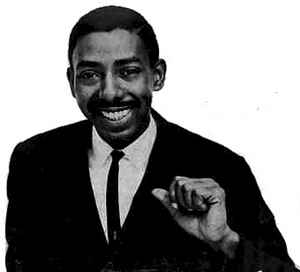 Jimmy McGriff Source: Soul Sides |
|
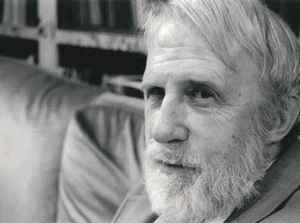 Ran Blake Source: Jazz Times |
Born in Springfield, Massachusetts, in 1935,
pianist,
Ran Blake, was
influenced as a youth by film noir, gospel,
Béla Bartók and
Claude Debussy. He
graduated from Bard College in Red Hook, New York in 1960. Majoring in jazz,
Blake had had his first encounter with
Third Stream originator,
Gunther Schuller, the
year before. Summer studies ensued in '59 and '60 at the School of Jazz in
Lenox, Massachusetts.
During that time he participated in
Kenny Dorham's 'D.C. Special' on August 29, 1959, that to get issued
in 1990 in Denmark on 'Lenox School of Jazz Concert 1959'.
Schuller would be among the most important figures in
Blake's life, both as a friend and in musical and professional capacities.
With
Schuller's assistance Blake first surfaced on vinyl in 1962 with
vocalist,
Jeanne Lee, on
the album, 'The Newest Sound Around' [1,
2,
3,
4] with
George Duvivier contributing to a
couple titles. 1963 witnessed him and
Lee touring to Stockholm, Sweden.
Blake issued his debut album, a suite of solos, in
1966: 'Ran Blake Plays Solo Piano'. Another tour to Stockholm with
Lee in latter 1966 resulted in
the duets that got issued in 1995 as 'Free Standards 1966 Stockholm'. Blake became Community Services Director
at the New England Conservatory [NEC: 1,
2,
3,
4]
in 1967 upon
Schuller
becoming NEC's
President, he founding a department of Jazz Studies at the NEC that year [1,
2]. Blake held
his position of staging concerts at
prisons and retirement homes until 1972 when he assumed the chair of NEC's Department of Third
Stream, created by
Schuller, and where
Blake
has continued to teach into the new millennium [1,
2,
3 (menu)].
In the meantime, Blake had recorded another string of solos in April of 1969
called 'The Blue Potato and Other Outrages'. Performances in '73 and '75 at Jordan Hall saw
issue by the NEC in 1979 on 'Third Stream Today'. Titles gone down in Jan of
1980 saw issue on 'Film Noir' that year. In 1981 Blake published 'Third Stream and the Importance of the Ear'
[*].
Blake was awarded a Guggenheim Fellowship for composition in 1982. December
of 1985 witnessed suites of piano solos released on Vol 1 & 2 of 'Painted
Rhythms: The Compleat Ran Blake' [1,
2,
3,
4]
issued in '87 and '88. Blake became
a MacArthur Foundation Fellow in 1988. Into the new millennium,
Blake initiated the annual Film Noir program at the NEC with a 2005 concert
addressing the 1922 film, 'Dr. Mabuse: The Gambler'. In 2011 Blake published 'The
Primacy of the Ear' [1,
2] with Jason Rogers. Blake is yet active with some
fifty albums to his catalogue. More recent issues include 'Chabrol Noir'' in 2015,
gone down in July 2012 in Belgium with Dominique Eade at vocals and Ricky
Ford (partnering since the early seventies) at tenor sax. Come 'Town and
Country' with Eade in 2017 as well as 'The Dorothy Wallace Suite' w Kresten
Osgood (drums). Blake yet teaches composition at
NEC as of this writing. References: 1,
2,
3.
Discos: 1,
2,
3 (menu),
4,
5, Lord (leading 76 of 96 sessions).
Compilations: 'The Newest Sound You Never Heard' 1966-67 w
Jeanne Lee issued
2019: 1,
2,
3.
Select videography.
Compositions.
Reviews.
Interviews: Michael Brodeur 2010: 1,
2;
Mathieu Perez 2014. Further reading: Blake blog,
Blake newsletter,
Blake website (menu);
Andrea Shea.
Other profiles: 1,
2. Per 1962 below, each track is from Blake's first
album with
Lee, 'The Newest
Sound Around'. More Blake under
Jeanne Lee. Ran Blake 1962 From 'The Newest Sound Around' Joint LP w Jeanne Lee Composition: Patty McGovern Music: George Gershwin 1934 Lyrics: DuBose Heyward For the opera 'Porgy and Bess' Composition: Elthea Peale Harold Courlander John Benson Brooks Ran Blake 1976 Album of piano solos Ran Blake 1963 Festival de Jazz d'Antibes Filmed live w Jeanne Lee Composition: Joe Greene Piano solo Composition: Blake Ran Blake 1981 Recorded 25/26 May '81 Recorded May/June '81 Ran Blake 1986 Composition: Blake Album: 'Short Life of Barbara Monk' Ran Blake 1991 Soprano sax: Steve Lacy Composition: Gershwin Brothers 1924 Ran Blake 1994 Composition: Tom Jobim Vinicius de Moraes Norman Gimbe Album: 'Unmarked Van' Drums: Tiziano Tononi Ran Blake 1999 Trumpet/flugelhorn: Enrico Rava Ran Blake 2001 Piano solo filmed live Ran Blake 2010 Filmed live in Lisbon Music: Harold Arlen Lyrics: Yip Harburg Ran Blake 2012 Piano solo filmed live Composition: Blake Ran Blake 2014 Filmed live in NYC Guitar: Dave Knife Fabris Ran Blake 2016 Filmed live in NYC Vocal: Sara Serpa Composition: Cole Porter
|
|
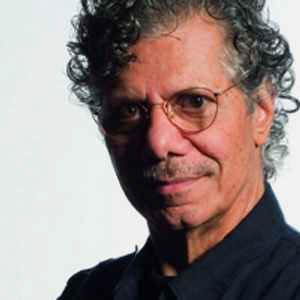 Chick Corea Source: Jazz & Chips |
Born in Chelsea,
Massachusetts, in 1940, keyboardist,
Chick Corea, had
a father who ran a Dixieland band in Boston and had him training at piano at
four. He began training on drums at age eight and was performing
professionally, in a tuxedo purchased for him by his father, while yet in
high school. Moving to NYC, Corea matriculated into both Columbia University
and Juilliard, both fleeting experiences in that Corea far preferred playing
nightclubs. One reason was hooking up to play gigs with
Cab Calloway, managing to
destroy any further notions of formal education. Corea is first discovered
on vinyl in 1962, performing on the album, 'Go, Mongo!', with Mongo Santamaria and His Afro-Latin Group.
That had gone down in July, followed by Willie Bobo's 'Bobo's Beat' on
October 11. Wikipedia wants that issued in '63, Discogs '64. Howsoever,
Joe Farrell contributed tenor sax on that, he to play a fairly important role in Corea's career,
participating in Corea's debut album, 'Tones for Joan's Bones' in latter
1966, through eight more to Tap Set' in 1979/1980. Corea performed on
Farrell's 'Courage' in 1970,
'Outback' in 1971 and 'Skate Board Park' in 1979. We return to
Sonny Stitt in November of 1963 for 'Stitt Goes Latin'.
Come Dave Pike's 'Manhattan Latin' in early '64,
Hubert Laws contributing to the
second of its two sessions in February and March. Corea next joined
Laws' Quartet in April
for 'The Laws of Jazz'. That was with
Richard Davis (bass) and Bobby Thomas
(drums). Laws and Corea maintained
a close musical relationship into the seventies, a reunion in 1980 to result
in Laws' fifth LP with Corea contributing keyboards: 'Family'. Laws
participated in Corea's 'Is' ("is") in May of '69, 'Tap Step' in 1979/1980 and 'The
Ultimate Adventure' in 2006. It was in a quartet for Laws
with
Grady Tate on drums for 'Laws'
Cause' on August 10 of '66 that Corea first recorded with bassist,
Ron Carter.
Carter and Corea would
partner on multiple occasions in the support of various, such as Miles
Davis, into the seventies. Corea backed
Carter's 'Parade' in March of
1979. In January of 1980 they joined a quartet with
Joe Henderson at tenor sax and
Billy Higgins on drums
resulting in 'Mirror Mirror'. They would reunite in the new millennium for
'So What' included on the album by various, 'Miles from India', issued in
2008. We back up to November 30, 1966, for Corea's debut LP per above with
Joe Farrell, 'Tones For Joan's Bones'. Also contributing to that were
Woody Shaw (trumpet),
Steve Swallow (bass) and Joe Chambers (drums). 'Now He
Sings, Now He Sobs' went down in March of 1968 in a trio with
Miroslav Vitouš (bass) and
Roy Haynes (drums). Corea's third album, 'Is', ensued in
May of 1969. Come 1973 Corea issued 'Bliss', for which drummer,
Pete La Roca, successfully sued
Muse Records since it was
La Roca who had led that session in May of 1967 to bear 'Turkish
Women at the Bath' that year. Wikipedia has Corea on the verge of 100 albums
led or co-led to 'Solo Piano - Portraits' in 2014 and 'Two' in 2015, a
compilation of earlier live recordings with banjo virtuoso, Bela Fleck. We
slip back to August 31, 1967, for
Stan Getz' 'What the World Needs Now',
that thought his first session with drummer,
Roy Haynes. Come 'Windows' in
March of 1968 with
Getz and
Steve Swallow on bass, that
included on the Corea collection called 'Music Forever & Beyond' released in
1995. Come a trio the same month of '68 with bassist,
Miroslav Vitouš, for Corea's
'Now He Sings, Now He Sobs' with another version of 'Windows'. Future
sessions with
Haynes in the eighties included
additional trios with
Vitouš: 'Trio Music' in
November of '81, 'The Trio Live from the Country Club' in '82 and 'Trio
Music Live in Europe' in Switzerland in 1984. That trio would reunite in
2001 for 'Matrix' on Corea's 'Rendezvous in New York'. As indicated,
Vitouš was among the more
important bassists along Corea's path, their first mutual session thought to
have been on September 29, 1967, for
Donald Byrd's 'The Creeper' and 'Chico
San'. October 5 of '67 saw those rendered again on
Byrd's album, 'The
Creeper'. Corea and
Vitouš bumped shoulders on
multiple occasions into the seventies backing other ensembles, such as
Wayne Shorter's, to reunite in 1981 for
both volumes of Creative Music Studio's 'Woodstock Jazz Festival'. 1983
found them in Tokyo with
Roy Haynes to support Toshiyuki Honda's 'Dream'.
Reunion twenty years later in 2003 in Italy and Norway resulted in
Vitouš' 'Universal
Syncopations'. We return to June of 1968 for another important figure in
Corea's career, that trumpeter, Miles
Davis, who that month began the recording of 'Filles de Kilimanjaro',
completed in September. Corea would contribute to 14 of Davis' albums
including 'Bitches Brew' to 'On
the Corner' gone down on June 1, 1972. Reunion in Paris in 1991 saw the
recording of the DVD, 'At La Villette', issued in 2001. We back up to
September 24, 1968, for another important bassist,
Dave Holland, with whom Corea
recorded 'Mademoiselle Mabry' and 'Frelon Brun' for Davis'
'Filles de Kilimanjaro' on that date. Corea and
Holland worked together
with Davis into the seventies. In
the meantime
Holland supported Corea's third
album, 'Is', in May of 1969.
Holland would
back nine more of Corea's albums to 'Gathering' in May in 1971. Reunion
twenty years later in '91 saw Davis' 'At La Villette' per above. Lord's
disco has
Holland and Corea together a last time for
Gary Burton's 'Like Minds' in December
of 1997. Another important drummer in Corea's career was
Jack DeJohnette, we
returning to their initial mutual session for Davis on November 27,
1968, for 'Ascent' and two takes of 'Directions' with
Wayne Shorter on sax and bassist,
Holland. Corea and
DeJohnette
maintained a tight musical relationship into the seventies, particularly
with Davis. Along the way
DeJohnette provided rhythm on Corea's 'Is' in May of '69 with
Woody Shaw at trumpet and
bassist,
Holland. Corea's 'The Sun'
ensued on September 14 of 1970. January of 1978 found them recording
John McLaughlin's 'Do You Hear the
Voices You Left Behind?' with
Stanley Clarke at bass on
'Electric Guitarist'.
DeJohnette and Corea would visit again in 1981 for both volumes of
Creative Music Studio's 'Woodstock Jazz Festival'. Corea's first session
with his group, Circle, had been on April 7 of 1970, that with prior
sessions in March of '68 and later sessions in August of 1970 going toward 'Circlng In'
in 1975. Circle's first album, 'Circulus', was laid out in August of 1970. A
live LP ensued in Germany before Circle 2, that group recording live in
Paris before 'Gathering' went down on March 17 of 1971. The avant-garde Circle
and Circle 2 were composed of Barry Altschul (drums),
Anthony Braxton (sax)
and
Dave Holland (bass). Return to Forever was a jazz fusion group that Corea
formed w
Clarke upon becoming a Scientologist. Its first of eight issues was 'Return
to Forever' in 1972 w
Joe Farrell (flute/
soprano sax),
Airto Moreira
(percussion) and
Flora Purim (vocals). Seven LPs followed to 'Live' in May of 1977.
Personnel altered on their third album, 'Hymn of the Seventh Galaxy', to
Clarke, Bill Conners
(guitar) and
Lenny White (drums).
White had supported Miles
Davis' 'Bitches Brew' w Corea in 1969. Return to Foerver's fourth
album, 'Where Have I Known You Before', saw Conners replaced by Al Di Meola.
Their sixth and seventh albums saw Di Meola replaced by Hammond B-3
keyboardist, Gayle Moran, the return of
Farrell, and additional
personnel (trombones, et al). Corea,
Clarke and
White
would resurrect Return to Forever for a few albums in the new millennium:
'Return to Forever Returns' ('09), 'Live at Montreux' ('09),
'Forever' ('11)
and 'The Mothership Returns' ('12). Clarke was another important
figure in Corea's career into the eighties, both backing each other's
projects and supporting other groups. Corea had participated in
Clarke's 'Children of
Forever' in '72 and 'Journey to Love' in '75.
Clarke later contributed to Corea's 'Pledge for Peace' in 2013 on the album, 'The
Vigil', with Ravi Coltrane (son of
John) at tenor sax. It was
Clarke's 'Up' in 2014. We
return to March of 1979 for what may have been Corea's first session with
tenor saxophonist,
Joe Henderson, that for
Ron Carter's 'Gypsy' toward his album, 'Parade'. Corea would surface on three of
Henderson's LPs: 'Mirror
Mirror' (1980), 'Relaxin' at Camarillo' (1981) and 'Big Band (1997). Henderson contributed
'Flamenco' to Corea's 'Tap Step' issued in 1980. Live in Montreux' and
'Trinkle Tinkle' went down in the summer of 1981 in Switzerland. The
Chick Corea Elektric Band' followed in 1986. Among Corea's more important
collaborations in the new millennium were with Norwegia's Trondheim Jazz Orchestra
[1,
2,
3,
4,
5,
6,
7], they releasing 'Live in Molde' in 2005. Among the host of others for whom Corea provided keys were
Blue Mitchell,
Herbie Mann, Gayle Moran,
Eddie Gómez, Eric Marienthal, Arturo
Sandoval, Bobby McFerrin and Lee Ritenour. Having won too many awards [1,
2,
3] to list,
including 22 Grammys, Corea toured internationally until his death of cancer
on 9 Feb 2021 in Tampa Bay, Florida.
References: 1,
2,
3,
4,
5,
6.
Timeline.
Sessions: JDP, Lord (leading 181 of 440 thus far). Discos:
1,
2,
3,
4,
5.
IMDb.
Compilations: 'The Complete "IS" Sessions' by Bluenote: 1,
2.
Compositions: 'Spain'.
Reviews.
Lead sheets.
Interviews: Les Tomkins 1977-82;
Bob Rosenbaum 1974;
Maarten de Haan 1994;
Michael Stewart 1999;
Ty Cumbie 2004;
Mike Ragogna 2011;
Ted Panken 2012
(pdf); NAMM 2016; various:
early texts,
later podcasts.
Instruction.
Official YouTube channel.
Corea at Facebook.
Biblio: books by Corea;
'Tonal and Transformational Approaches to Chick Corea's Compositions of the 1960s' by
Steve Strunk ('Music Theory Spectrum' 2016).
Further reading LA Phil.
Other profiles: 1,
2,
3,
4.
Chick Corea 1962 Mongo Santamaria and his Afro-Latin Group Composition: Santamaria Album: 'Go, Mongo!' Chick Corea 1968 From 'Filles de Kilimanjaro' Miles Davis LP Recorded June & Sep 1968 Release 1968 UK 1969 US All comps by Davis Mademoiselle Mabry (Miss Mabry) From 'Tones for Joan's Bones' Recorded Nov & Dec 1966 Trumpet: Woody Shaw Flute/tenor sax: Joe Farrell Bass: Steve Swallow Drums: Joe Chambers Composition: Corea Chick Corea 1970 Album Title track composed by Corea Chick Corea 1972 LP by Return to Forever Title track composed by Corea Flute/soprano sax: Joe Farrell Percussion/drums: Airto Moreira Percussion/vocals: Flora Purim Lyrics: Neville Potter Chick Corea 1986 Filmed live with the Elektric Band Composition: Corea With the Elektric Band Chick Corea 2003 Filmed live Saxophone: Michael Brecker Bass: Eddie Gomez Drums: Steve Gadd Chick Corea 2007 Album Trio with: Bass: John Patitucci Drums: Antonio Sanchez Filmed concert Chick Corea 2013 Filmed concert Chick Corea 2014 Filmed live with Bela Fleck Composition: Corea Filmed concert
|
|
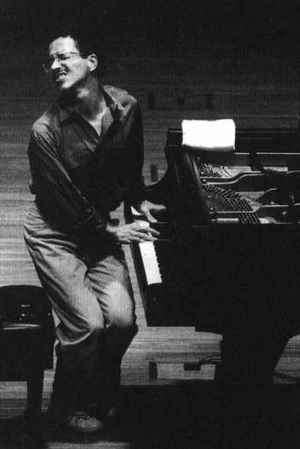 Keith Jarrett Source: FMA |
Born in 1945 in Allentown, Pennsylvania,
Keith Jarrett
gave his first classical recital at age seven, including two of his own
compositions. The Muller-Bruchez sessionography has him at the Salem
Evangelical and Reformed Church in Allentown, PA, on 22 April 1952, the
Woman’s Club Auditorium on 12 April of '53. Jarrett's interest in jazz began in high school before traveling to
Boston to attend the Berklee College of Music for a year. While there he participated
in his first emergence on vinyl, 'Swinging Big Sound', issued in 1962 by Don
Jacoby and the College All Stars. Lord has that recorded in '61, JDP (Jazz
Discography Project) in '62. By night Jarrett played in piano lounges
before moving to NYC to find employment at the Village Vanguard.
Art Blakey
shook things up when he hired Jarrett to join the Jazz Messengers. In
January of 1966 Jarrett recorded 'Buttercorn Lady' with
Blakey at the Lighthouse in
Hermosa Beach, CA, an elite jazz hub near Los Angeles where John Levine had
run the show until his death in 1970 and the club was sold to Rudy Onderwyzer.
The Lighthouse was home to bassist,
Howard Rumsey's Lighthouse
All-Stars since 1949 and into the seventies. Be as may, drummer,
Jack DeJohnette, got Jarrett hired into
Charles Lloyd's band in
1966.
DeJohnette would play a
major role throughout Jarrett's career while
Lloyd's would be his first
major employment in band. His debut session with
Lloyd that year was on March
29 for 'Dream Weaver'. Jarrett and
Lloyd made a
dynamite combination, releasing several albums together to 'Soundtrack', their last,
on November 15 of 1968. As for
DeJohnette, he traveled with
Jarrett through Miles
Davis after
Lloyd, they in the meanwhile
recording their duo album, 'Ruta and Daitya' in May of 1971.
DeJohnette would be the
third member of Jarrett's trio with
Gary Peacock, below, from '77 to '09.
During Jarrett's period with
Lloyd he laid out his debut
album, 'Life Between the Exit Signs', on May 4 of 1967 in a trio with
Charlie Haden (bass) and Paul
Paul Motian (drums). Both
Haden and
Motian would assume major roles
in Jarrett's career.
Motian backed Jarrett on sixteen
more albums to September 16, 1992, for 'At the Deer Head Inn' in a trio with
Gary Peacock at bass. Jarrett
participated in
Motian's 'Conception Vessel' in
November of 1972. Haden backed
Jarrett on sixteen more albums as well to their duo in March of 2007,
'Jasmine'. Jarrett backed Haden's
'Closeness' in 1976. Jarrett followed 'Life Between the Exit Signs' with
'Restoration Ruin' on March 12, 1968, on which he sings vocals and plays
guitar, harmonica, soprano saxophone, recorder, piano, organ, electric bass,
drums, tambourine and sistra. He constrained himself to acoustic piano in
1972 on 'Facing
You', his next of several solo LPs. Lord has Jarrett's first tracks with
saxophonist,
Jan Garbarek, gone down in
Hannover, Germany, on 18 April of 1974 per NDR Jazz Workshop #100 for 'The
Windup' issued on 'NDR Jazzworkshp '74' (NDR 666 516). That same April
Garbarek and
Jarrett co-led 'Belonging'
in Oslo and 'Luminessence' in Ludwigsburg.
Garbarek then
joined
Jarrett for the latter's 'Arbour Zena'
in '75, 'My Song' in latter '77, both 'Personal Mountains' and
'Sleeper'
in Tokyo in April 1979, and 'Nude Ants' at the Village Vanguard in NYC in
May 1979. We back up a little to September 1976 at the Benedictine Abbey in
Ottobeuren, Germany, for Jarrett's solos on the Karl Joseph Riepp Trinity
Baroque pipe organ, that released on 'Hymns/Spheres' [1,
2.
3]. 1978
had seen the release of Jarrett's 'Sun Bear
Concerts', a huge issue of solo recordings made in Japan in 1976. 1980 saw
the solo piano release of the 'Sacred Hymns' [1,
2] by classical composers, George Gurdjieff
and Thomas de Hartmann. In 1995
'At the Blue Note' was issued, a giant volume of standards recorded live
with
Gary Peacock (bass) and
Jack DeJohnette (drums).
They laid out 'After the Fall' [1,
2] on 14 Nov 1998 at the New Jersey
Performing Arts Center in Newark, not to see release until 2018. Another series of standards were issued
by Jarrett,
Peacock and
DeJohnette between 1999 and 2002, recorded
variously in France, England, Japan, Switzerland and Germany. They put down
'Somewhere' [1,
2] in 2009 for release in 2013. Jarrett has released above eighty albums, not counting his
classical recordings, beginning with composer, Arvo Part, in 1984 on the
issue of 'Tabula Rasa'. Jarrett released numerous classical recordings into
the nineties. His latest issue was the live album, 'Creation', in 2015. We
return to the dissolution of
Lloyd's quartet after
'Soundtrack' above in November of 1968, upon which Jarrett hooked up with Miles
Davis. Jarrett's first tracks with
Davis are thought to have been toward 'Get Up With It' on May 19 of
1970, that completed in stages to '74 minus Jarrett. He participated in
Davis' 'Live-Evil' in NYC in 1970 before 'Miles Davis at Fillmore' (East
in NYC) in June. Several later Davis
albums would be released from Jarrett's relatively brief period with him.
Lord's disco has their last session on November 26, 1971, at Philharmonic
Hall for 'Bwongo' and 'Ananka', those to get issued on an unknown date on
'Hooray for Miles Davis Vol 3'. As indicated, another of Jarrett's more
important compatriots was
Gary Peacock. Their first of 21 albums
of trios was 'Tales of Another' in February of 1977. Their last was
'Somewhere' on July 11, 2009, in Lucerne, Switzerland. Their third limb on
all but one of those was
Jack DeJohnette. Jarrett
is yet active touring as of this writing. More of him found under
Gary Peacock.
References: 1,
2,
3,
4,
5.
Sessions: Bruchez-Muller;
JDP; Lord.
Discos: 1,
2,
3,
4,
5,
6.
Jarrett in visual media.
Performance itinerary.
Transcriptions.
Interviews: Ted Rosenthal 1996,
Sara Fishko2 (radio).
Facebook.
Further reading: Tim Blangger;
Christopher Chase (Jarrett and Gurdjieff);
Mikal Gilmore;
Ted Gioia;
Jim Jerome;
C. B. Liddell (Jarrett and Zen philosophy);
NPR;
professionalism and Jarrett:
1,
2,
3;
various;
Charles Waring.
Bibliography: 'Keith Jarrett: The Man and His Music' by Ian Carr (trumpeter)
per Da Capo Press 1992.
Other profiles: 1,
2,
3. Keith Jarrett 1962 From 'Swinging Big Band' * Decca DL/DL 7 4241 Don Jacoby & the College All-Stars Lead of 5 trumpets: Jacoby Composition: Dizzy Gillespie Composition: Hal Mooney/Hughie Prince Keith Jarrett 1965 Bass: Kent Carter Drums: Dannee Fullerton Music: Victor Schertzinger 1941 Lyrics: Johnny Mercer Keith Jarrett 1975 Album Sax: Jan Garbarek Bass: Charlie Haden Stuttgart Radio Symphony Orchestra Solo album Recorded 24 January 1975 Cologne, Germany Keith Jarrett 1978 Album: 'My Song' Sax: Jan Garbarek Bass: Palle Danielsson Drums: Jon Christensen All compositions: Jarrett Keith Jarrett 1984 Filmed live in Japan Music: Harold Arlen 1939 Lyrics: Yip Harburg Keith Jarrett 1987 Filmed concert Keith Jarrett 1989 Album Keith Jarrett 1993 Keith Jarrett Trio filmed live Composition: Jarrett Keith Jarrett 1995 Live at Teatro alla Scala Keith Jarrett 1996 Composition: Mozart
|
|
|
Born in Columbus, Ohio, in 1936,
Don Patterson,
had trained on piano as a child, but would begin his professional career in
1959 as an organist. His first major musical associate was
Sonny Stitt in New York City. He
contributed to the joint
Gene Ammons/Sonny Stitt LP in
on February 18, 1962: 'Boss Tenors in
Orbit!'. Stitt's 'Feelins' and 'Low Flame' were completed in April. Patterson and
Stitt would work closely together into
the early seventies, Patterson contributing to upwards of 17
Stitt albums to 'Black Vibrations' in
July of '71. He recorded his
first album as a leader in Chicago on January 22 of 1963, 'Goin' Down Home'
[1,
2].
That was a trio with Paul Weeden (guitar) and Billy James (drums), not released
until 1966. Patterson put down four more albums that year: 'The Exciting New
Organ of Don Patterson', 'Hip Cake Walk', 'Patterson's People' and 'Holiday
Soul'. Discogs credits him with 28 albums as a leader
or co-leader to 'Why Not?' gone down on January 26, 1978. Patterson lived in scenic Gary, Indiana,
per the seventies, later in Philadelphia where he died on 10 Feb of 1988, having been
on dialysis for kidney woes. Lord's disco tracks him to as late as tenor
saxophonist, John Simon's, 'Legacy' on May 20, 1986, that a trio with Greg
McDonald (drums) laid out in Philadelphia. References: 1,
2.
Discos: 1,
2,
3,
4,
5,
6, Lord (leading 19 of 39 sessions).
Instruction. Per 1962 below, tracks
are from the
Gene Ammons-Sonny Stitt
LP, 'Boss Tenors in Orbit!'. Don Patterson 1962 From 'Boss Tenors in Orbit' LP by Gene Ammons & Sonny Stittt Tenor sax: Ammons & Stittt Guitar: Paul Weeden Drums: Billy James Composition: Mort Dixon/Ray Henderson 1926 Composition: Jimmy Mundy Music: Jerome Kern 1929 Lyrics: Oscar Hammerstein II Don Patterson 1964 Composition: Patterson Debut LP: 'The Exciting New Organ of Don Patterson' Recorded 12 May 1964 From 'Hip Cake Walk' Recorded 12 Ma & 10 July 1964 Composition: Patterson Composition: Patterson Composition: Kenny Young/Arthur Resnick Don Patterson 1965 Composition: Les Brown/Bud Green 1944 Album: 'Patterson's People' Recorded 1964 Alto/tenor sax: Sonny Stitt Tenor sax: Booker Ervin Drums: Billy James Don Patterson 1966 Composition: Sonny Stitt Album: 'Goin' Down Home' Recorded 22 Jan 1963 First session as leader Don Patterson 1967 Composition: Patterson Album: 'Mellow Soul' Tenor sax/flute: David Newman Drums: Billy James Don Patterson 1968 From 'Four Dimensions' Recorded 25 August 1967 Composition: Gershwin Brothers 1928 Composition: Clifford Brown End 'Four Dimensions' Composition credited: Charlie Parker Composition claimed: Miles Davis Album: 'Boppin' and Burnin'' Recorded 22 Feb 1968 Don Patterson 1969 Composition: Sonny Rollins Album: 'Funk You!' Recorded 24 Sep 1968 Don Patterson 1974 Album recorded 30 Oct 1972 NYC Saxophones: Eddie Daniels Guitar: Ted Dunbar Drums: Freddie Waits
|
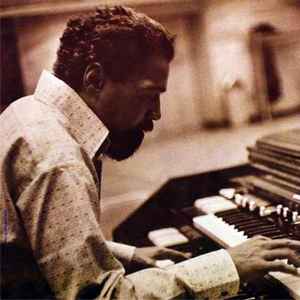 Don Patterson Source: All About Jazz |
|
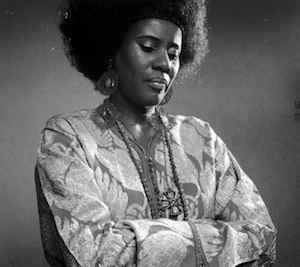 Alice Coltrane Source: Delo |
Born Alice McLeod in 1937 in Detroit, composer,
Alice Coltrane
(McLeod), played harp, piano and organ. She would later go by Turiya Alice Coltrane
from her Sanskrit name, Turiyasangitananda
[1,
2,
3]. Classically trained, she began playing piano
at age nine at her Baptist church. In 1959 she traveled to Paris to study
jazz with pianist,
Bud Powell. Lord's disco has her
contributing piano on 1 January of 1960 to a radio broadcast from the Blue
Note nightclub by
Lucky Thompson, 'Lover Man'
eventually released on CD per 'Lucky Thompson and His Octet in Paris 1960 at
Club Saint-Germain & The Blue Note' (Fresh Sound FSRCD 948). While
in Paris Alice bore singer, Michelle
(Sita) Coltrane [*], in 1961 via
husband [discogs] and vocalist, Kenny Hagood. Back in the States, she made
her recording debut on several
tracks with the Terry Gibbs Octet
in January and March of 1963 in NYC, released on 'Terry Gibbs Plays Jewish
Melodies in Jazztime' that year. In February of 1963, between the above two sessions, she joined
Gibbs' quartet for 'The Family Album'
not issued until 1979. Tracks recorded with Gibbs
that April would end up on Gibbs'
'El Nutto' the next year. Gibbs' 'Hootenanny My Way' went down in 1963 as
well on an unknown date. It was via
Gibbs that Alice met
John Coltrane in 1963. They produced
two children, John Jr. (Arjuna) in '64 and Ravi in '65, before their marriage in
1967, after which arrived Oran (Oranyan) that year. All of Coltrane's
children had a musical lean, though John Jr. died in an auto accident while
yet a teenager. The most famous of her progeny is the saxophonist, Ravi [1,
2,
3,
4].
Alice laid tracks with
John and tenor saxman,
Pharoah Sanders, in February
of '66 which would surface on 'Cosmic Music' in 1968 (John
passed). In May of '66 she was recorded with
John and
Sanders again at the Village
Vanguard in NYC, that released in December on 'Live at the Village Vanguard
Again!'. Alice would appear on about eight albums with
John, some issued
after
John's death (July 1967), such as 'Live in Japan' gone down in 1966,
released in 1973. Her participation in 'Infinity' was dubbed in April of
1972 over tracks recorded by
John in '65 and '66. Alice released her first LP with
Sanders, 'A Monastic Trio',
in 1968. John was yet alive when
she recorded her piano solo, 'Altruvista', on March 7 of 1967, later
included on 'A Monastic Trio' as a bonus track. Coltrane's next album was
'Huntington Ashram Monastery' in 1969, reflecting the life she would devote
to Eastern philosophy and transcendental meditation. Sydney Monday draws
attention to 'Journey in Satchidananda'
[1,
2] gone down on 8 Nov 1970 toward
issue the next year. In 1975 Alice founded the Vedantic Center in the Santa Monica Mountains just north of Malibu, CA. Her
spirituality would be thematic in the seventeen albums she released into the nineties.
Coltrane recorded w all four of her children at one time or another. Lord's disco has Arjuna
(John Jr.) contributing drums to 'Om Namah Sivaya' on Alice's 'Radha
Krisna Nama Sankirtana' in August of 1976. Michelle
contributed violin on April 16, 1978, to Alice's 'Transfigurations'. Coltrane would began working with Ravi
and Oran in the eighties. In 2004 she issued her eighteenth album, 'Translinear Light',
on which Ravi blew both tenor or soprano sax on five tracks starting in April of
2000. Oran performed alto sax in a duet with Alice on that album on June 12,
2004: 'The Hymn'. Lord's disco shows that to be her last session. Coltrane died of respiratory failure
on 12 January of 2007 [obits:
1
2,
3,
4,
5].
References: 1,
2,
3,
4,
5,
6.
Discos: 1,
2,
3,
4, Lord;
as Turiyasangitananda.
Compositions. Further reading:
Brad Farberman,
Kurt Gottschalk (Alice w John),
Hua Hsu,
Ananda Leeke,
Martyn Pepperell. Other Profiles:
1,
2,
3,
4.
Per 1963 below, tracks are from
'Terry Gibbs Plays Jewish Melodies in Jazztime'. Coltrane's piano on that was her
first presence on record including 'Bei Mir Bist Du Schoen' and 'Papirossen'
[*].
Though Allan Logan also contributed piano to that album tracks below are
thought to feature Alice. Alice Coltrane 1963 From 'Jewish Melodies in Jazztime' Vibes: Terry Gibbs ('To Me You're Beautiful') Music: Sholom Secunda 1932 Lyrics Yiddish: Jacob Jacobs Lyrics English: Sammy Cahn/Saul Chaplin Composition: Jack Yellen/Lew Pollack ('Cigarettes') Composition: Herman Yablokoff Composition: Traditional Alice Coltrane 1966 Live at the Village Vanguard Again! LP by John Coltrane Alice Coltrane 1968 Album: 'A Monastic Trio' All compositions: Alice Coltrane Composition: John Coltrane Album: 'Cosmic Music" Recorded 1966 Album: 'A Monastic Trio' All compositions: Alice Coltrane Alice Coltrane 1969 Album All compositions: Alice Coltrane Alice Coltrane 1970 Album All compositions: Alice Coltrane Alice Coltrane 1971 Album All compositions: Alice Coltrane Alice Coltrane 1972 Album Alice Coltrane 1974 Album Guitar: Carlos Santana Alice Coltrane 1977 Album Alice Coltrane 1978 Album Alice Coltrane 1987 Album as Turiyasangitananda All compositions: Turiyasangitananda Alice Coltrane 2004 From 'Translinear Light': Composition: Alice Coltrane Composition: Alice Coltrane Composition: From 'I Want Jesus to Walk with Me' Negro spiritual
|
|
|
Born in 1938 in Chicago, Illinois, composer,
Denny Zeitlin,
trained at classical piano as a child and was performing professionally as a
high school student. He acquired his bachelor's from the University of
Illinois in 1960, his master's in medicine from Johns Hopkins in 1964. Prior
to that he appeared on
flautist,
Jeremy Steig's debut
LP, 'Flute Fever' [1,
2] in
1963 with Ben Tucker (bass) and Ben Riley (drums). He was yet at Johns Hopkins when he recorded 'Cathexis' for issue in
1964 in a trio with
Cecil McBee (bass) and Freddie Waits
(drums). 'Carnival' appeared the same year in a trio with
Charlie Haden (bass) and Jerry
Granelli (drums). Zeitlin's third LP, 'Shining Hour', went down with the
same trio at the Trident in Sausalito, CA, in March of 1965. His last with
that configuration was 'Zeitgeist' in April of 1966. Zeitlin's was a tridential career,
he not only a pianist, but a clinical psychiatrist (having continued studies
at the University of California San Francisco) and educator (teaching at the
University of California San Francisco since 1968). He has also integrated
psychiatry with psychoanalysis, per Joseph Weiss and Control Master Theory,
for a few decades now. Zeitlin has issued above thirty albums. Of particular note in
the nineties were collaborations with bassist, David Friesen. Zeitlin had
participated in Friesen's 'Other Times, Other Places' in 1989. Their duo,
'In Concert', went down in Portland in 1992. Come their duo, 'Denny Zeitlin
- David Friesen' (also known as Concord Duo Series Vol 8), in '94 at the
Maybeck Recital Hall in Berkeley, CA. Their duo 'Live at the Jazz Bakery'
('99) was performed in Los Angeles in May of 1996. Zeitlin's first trio
recordings with
Buster Williams
(bass) was with
Al Foster at drums on 5 Dec 1997 in New York toward 'As Long
As There's Music'. It was a trio of
Williams
w Matt Dennis on drums at
the Jazz Bakery in Nov of 2001 to record 'The We of Us'. That was added to
sessions in 2004 and 2006 toward 'In Concert' [1,
2]
issued by Sunnyside in 2009. Another performance by that trio in Culver
City, CA, in Nov 2001 resulted in the 2014 release of 'Stairway to the Stars' [*]. Come 'Sliderock' [1,
2,
3]
in Brooklyn on 23/24 August of 2003. That trio's last session was on 10
March of 2009 in New York toward 'Wishing on the Moon' [1,
2,
3,
4,
5]. Duos, trios and smaller ensembles make up Zeitlin's
armada as a leader or co-leader. Later solo piano issues were 'Solo Voyage' ('05),
'Precipice' ('10), 'Labyrinth' ('11), 'Wherever You Are: Midnight Moods for
Solo Piano' ('12) and 'Both/And' ('13). Among Zeitlin's later albums were
'Riding the Moment' in 2015 with George Marsh and a suite of
Wayne Shorter compositions titled
'Early Wayne' [1,
2,
3] in 2016,
the latter a string of piano solos. Zeitlin's latest issue as of this
writing was also a suite of piano solos, this time a Miles
Davis songbook
released in 2019 called 'Remembering Miles'
[1,
2,
3,
4,
5,
6,
7,
8]. Beyond music and the vast realms of psychoses Zeitlin
is also highly knowledgeable in
mountain biking, fly fishing and wine. Currently residing in Kentfield north
of San Francisco, Zeitlin is married to actress, Josephine Zeitlin.
References: 1,
2,
3.
Discographies: 1,
2,
3,
4,
5
(alpha),
Lord (47 of 53 sessions).
IMDb.
Compositions.
Samples: solo piano.
Psychiatry: 1,
2.
Interviews: Martin Rowe 2002;
Marian McPartland 2010;
Jake Feinberg 2013.
Archives: 1,
2.
Further reading: Ted Gioia;
Richard Scheinin;
David McKay Wilson.
Other profiles: 1,
2. Denny Zeitlin 1963 Composition: Miles Davis Jeremy Steig album: 'Flute Fever' Denny Zeitlin 1964 From 'Cathexis' Comps below by Zeitlin Composition: Zeitlin Composition: Zeitlin Denny Zeitlin 1966 From 'Live at the Trident' Recorded 22-24 March 1965 Composition: Sonny Rollins Denny Zeitlin 1973 Composition: Zeitlin/George Marsh/Mel Graves Album: 'Expansion' Denny Zeitlin 1983 Filmed at the Berlin Jazz Festival Composition: Zeitlin What Is This Thing Called Love Composition: Cole Porter 1929 For the musical 'Wake Up and Dream' Denny Zeitlin 1984 Composition: Zeitlin Album: Tidal Wave' Denny Zeitlin 1998 From 'As Long As There's Music' Composition: John Coltrane Composition: Sherman Edwards/Donald Meyer/Elise BrettonComposition: Tom Jobim
|
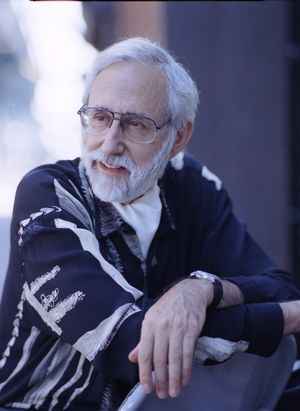 Denny Zeitlin Source: Jazz Wax |
|
|
Born in 1935 in Cleveland, Ohio,, pianist,
Bobby Few, grew up
with saxophonist,
Albert Ayler, with whom he
listened to
Charlie Parker and Lester
Young records and would later record a
couple albums in 1969. First, however, he gigged in the Cleveland area with
such as Bob Cunningham,
Bill Hardman and
Frank Wright. Restless to New York
City, he there formed a trio with which he performed from '58 to '64. He
also gigged there with friend,
Ayler,
Brook Benton,
Rahsaan Roland Kirk,
Jackie McLean and
Joe Henderson. He is thought
to have first recorded on January 12, 1968, with
Booker Ervin, appearing on the
latter's 'The In Between'. Followed in 1969 by sessions with
Ayler ('Music Is the Healing
Force of the Universe' and 'The Last Album'), then Marzette Watts, those
were his last in the United States before moving to France that year, to
later return on tour on multiple occasions. Few's recording debut with alto
saxophonist,
Noah Howard, and tenor
saxophonist,
Frank Wright, was the latter's 'One
for John' in December of '69 in Paris with Muhammad Ali on drums. Few had
first recorded with Ali on
Ayler's 'Music Is the Healing Force of the
Universe'. They would see a lot of each other, particularly with
Wright, into the eighties. (Howard
had moved to Europe in 1968.
Wright, Ali and his brother, drummer,
Rashied Ali, followed in 1969.) Both
Howard and
Wright would be important figures in
Few's career. His next sessions for
Wright in Paris in 1970 resulted in
'Church Number Nine' and 'Uhura Na Umoja', those including
Howard. Four albums ensued to
'Unity' in 1974. Between January and November of 1975 Few recorded 'Solos
Duets' with
Wright and bassist,
Alan Silva. March of 1975 had
wrought 'Chapter Ten' with Ali and
Silva, that issued on the album by various, 'For Example: Workshop Freie
Musik 1969-1978', in 1979. Among other titles with
Wright to follow was 'Cowboys and
Indians' on March 14, 1981, that getting issued in 1997 on 'Jazzgalerie
Nickelsdorf – The 20th Anniversary Album'. As for
Noah Howard, 'Space Dimension'
had gone down in Paris in 1970. Five albums followed to as late as 'Desert
Harmony' in 2006 recorded in Amman, Jordan. We slip back to December 29,
1970, in Paris for Few's first session with soprano saxophonist,
Steve Lacy, with
Silva, that for Parts 1-6 of the
latter's 'Seasons'. (Silva,
originally born in Bermuda, had moved to Europe in 1969,
Lacy following in 1970.) Ten years later
Few participated in
Lacy's 'Ballets' on December 18 of 1980
(including Silva), commencing a
relationship that would witness seventeen albums to 'Findings' gone down in
April and July of 1994. Few and Silva
would visit on multiple occasions throughout their careers, backing other
ensembles like
Wright's. Few's debut album, 'More or Less Few'
(Sun CN003), in 1973
had been a trio with Silva and
Muhammad Ali on drums taped in Paris. 'Solos Duets' followed per above in 1975. They joined
drummer,
Sunny Murray, for the latter's 'Aidu-Grave'
in 1979 with Richard Raux (tenor sax) and Pablo Sauvage (percussion).
'Rhapsody in Few' (Black Lion 65111) went down in June of 1983 in a trio with Ali. 2001 saw Few
in Silva's Celestrial Communication
Orchestra for 'Treasure Box'. 2007 saw them both back in New Jersey
contributing to Act I of 'The Removal' on trumpeter, Jacques Coursil's,
'Trails of Tears', issued in 2010. Having toured Europe and regions
thereabout heavily during his career, Few had also held sessions in Turkey
with both
Lacy and Zusaan Kali Fasteau. Having revisited the United
States numerously since 1986, Few there backed sessions for
Lacy ('86,
'91), Fasteau ('95, '97, '04),
Howard ('97), Chris Chalfant
('05), Jacques Coursil ('07) and Eve Packer ('08). Of Few's 17 albums, two
were piano solo endeavors recorded in Paris, 'Few Coming Thru' (Sun SEB001)
on 29 September 1977 and 'Continental Jazz Express' (Vogue JT2605) on 12
March 1979. Two decades later Few released another album titled 'Continental Jazz Express'
(Boxholder 026) in 2000, a suite
of piano solos performed at the Vision Festival in New York. 'Few and Far
Between' (Boxholder 029) followed a week later in a trio with Avram Fefer (tenor sax) and
Wilber Morris (bass). August of 2004 witnessed 'Kindred Spirits'
[1,
2]
recorded w Fefer in Paris. Another solo album appeared in 2004, 'Lights and
Shadows' (Boxholder BXH054) gone down in Paris in November. Come 'Sanctuary'
(CIMP 333) on May 7 of 2005 in New Jersey with Fefer, Hilliard Greene (bass)
and Newman Taylor Baker (drums). Few has issued as recently as 'True Wind', a string of duets
with alto saxophonist,
Sonny Simmons, gone down on
November 10, 2007. References: 1,
2.
Sessions: Lord (leading 11 of 85); Scala.
Discos: 1,
2,
3.
Bobby Few 1968 Booker Ervin LP: 'The In Between' Tenor sax/flute: Booker Ervin Trumpet: Richard Williams Bass: Cevera Jeffries Drums: Lenny McBrowne All comps by Booker Ervin Bobby Few 1970 Composition: Bobby Few Frank Wright LP: 'One for John' Tenor sax/all arrangement: Frank Wright Alto sax: Noah Howard Drums: Muhammad Ali Composition: Noah Howard Noah Howard LP: 'Space Dimension' Tenor sax: Frank Wright Alto sax: Noah Howard Drums: Art Taylor/Muhammad Ali Bobby Few 1973 LP: 'More Or Less Few' Bass: Alan Silva Drums: Muhammad Ali All comps by Bobby Few Bobby Few 1979 Album Soprano sax: Jo Maka Percussion: Cheikh Tidiane Fall Bobby Few 1982 Composition: Steve Lacy Steve Lacy LP: 'The Flame' Soprano sax: Steve Lacy Drums: Dennis Charles Bobby Few 1991 Album Electric Bass: Raymond Dumbe Drums: Noel McGhie All comps by Bobby Few Bobby Few 2002 Album Bobby Few 2013 Composition: Duke Ellington 1932 Soundtrack: 'Mood Indigo' Live at the Czech Centre Paris Filmed live
|
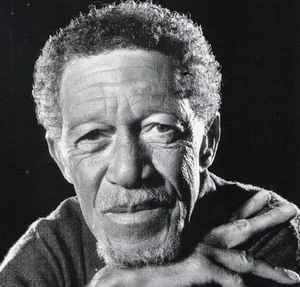 Bobby Few Source: Discogs |
|
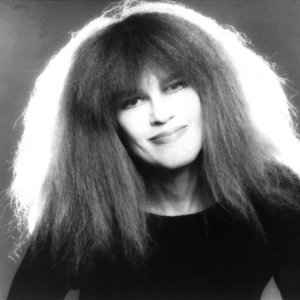 Carla Bley Source: Music Me |
Born Carla Borg in 1936 in Oakland, CA, composer/pianist
(some might say punk jazz composer/pianist),
Carla Bley, had a
father for a piano teacher, so it's natural that a restless girl be
attracted to influences otherwise, she moving from a church environment at
home to
NYC circa 1954 to get a job selling cigarettes at the Birdland jazz club.
She there played piano as well, also meeting pianist,
Paul Bley, whom she
married in 1957. She began composing with
Paul, other musicians beginning to record
her work as well. In 1964 she assisted in the formation of the Jazz
Composer's Guild with
Bill Dixon to promote avant-garde
jazz.
In 1965 she,
Michael Mantler and
Steve Lacy formed the
Jazz Musicians Orchestra, which would spawn the Jazz Musicians Orchestra
Association to replace the Guild. That orchestra
recorded 'Communication' in December of 1964 for issue in 1965 with 'Roast'
composed and arranged by Carla. The other two tracks on that were composed by
Mantler with Carla out: 'Day
(Communications No. 4)' and 'Day (Communications No. 5)'. The Jazz Musicians
Orchestra would issue several albums into the seventies with contributions
by Carla.
Paul's 1965 album, 'Barrage',
consisted entirely of Carla's compositions. She appeared with
Lacy on
Mantler's 'Jazz Realities' in 1966,
her first piano performance on disc, and the first of
several LPs she would release with
Mantler into the eighties.
Their last session together is thought to have been in the summer of 1990
for 'Karen Mantler and Her Cat Arnold Get the Flu'. Carla
and
Paul had divorced in '67 [1,
2], Carla retaining his
last name professionally though she married
Mantler that year to 1991,
she to wed Steve Swallow the latter year. Bley's union with Mantler wrought
the birth of their daughter, musician,
Karen Mantler [1,
2,
3,
4], in 1966. 1968 saw the release of
'The Jazz Composer's Orchestra', a double album taking six months to make
with contributions from every avant-garde jazz artist in NYC that could be
gathered (and others too, young
Linda Ronstadt contributing vocals). Carla
plays piano on that album but Cecil
Taylor is the main feature. Charlie Haden would begin
to figure big in Carla's career in the latter sixties with Jazz Composer's
Orchestra, she contributing to his
1970 album, 'Liberation Music Orchestra'. She and
Haden would cross paths
well into the new millennium. In 1971 Carla released the huge
project on which she'd been working the last three years, 'Escalator Over
the Hill', a jazz opera with six sides that made her name alongside
lyricist, Paul Haines.
Mantler produced and coordinated the project on which
she performed keyboards and voice with the several bands she had formed for
its making. Among the members of the orchestra was
tenor saxophonist,
Gato Barbieri (also appearing on 'The Jazz Composers
Orchestra' in '68). Bley received a Guggenheim Fellowship for composition in 1972.
She released
'Tropic Appetites' in 1974 in a number of capacities, including keyboards
and voice. She was again joined by
Gato Barbieri. Well above twenty more albums as a leader would
follow into the new millennium, including 'Boo to You Too' in 1979. Another important
figure in Bley's life
was bassist,
Steve Swallow, with whom she'd been working since
'Communication' in '65 and would continue throughout her career. They issued 'Night-Glo' together in 1985, the first of
several into the new millennium, getting married in 1991 along the way. Bley was made an
NEA Jazz Master in 2014.
She has led or co-led nearly thirty albums to as late as 'Andando el Tiempo'
in 2015 with Andy Sheppard at sax and
Swallow at bass guitar.
The next year she broke her wrist picking fruit in the British Virgin
Islands. With
perhaps 100 sessions to her credit among the numerous with whom she had
worked were
Gary Burton, Don Cherry,
Grachan Moncur III,
Orchestra Jazz Siciliana and Rudiger Krause. Residing in Woodstock, New York, she is yet active and highly popular in
Germany. References encyclopedic: 1,
2;
musical 1,
2,
3,
4,
5,
6.
Sessions: JDP, Lord.
Compositions: big band,
chamber,
octet.
Lead sheets: *,
'for impaired right hand' *. Discographies: 1,
2,
3.
Interviews: Don Palmer 1984;
Frank Oteri 2003,
2003;
Ken Kimery 2014
(pdf),
Amy Beal 2016.
Further reading: articles: Bley on various of her albums at JazzTimes;
Bley 1976-1984 at MA;
Bley at age eighty at NPR,
NYTimes;
Iverson;
books: 'American Composers: Carla Bley' by Amy Beal (U of Illinois Press 2011). Per 1971 below, all tracks are from 'Escalator Over the Hill' with
compositions by Bley. Carla Bley 1966 Album by Michael Mantler Carla Bley 1971 From 'Escalator Over the Hill' Compositions: Carla Bley Carla Bley 1972 Album Carla Bley 1980 Filmed live Kansas City Womens Jazz Festival Composition: Carla Bley Carla Bley 1981 Composition: Carla Bley Nick Mason album: 'Fictitious Sports' Carla Bley 1989 Album Carla Bley 1994 Composition: Carla Bley Album: 'Songs with Legs' Carla Bley 2002 Filmed concert Bass: Steve Swallow Sax: Andy Sheppard Carla Bley 2004 Filmed concert The New Liberation Orchestra Filmed concert The New Liberation Orchestra Carla Bley 2006 Filmed concert Carla Bley 2009 Album Carla Bley 2012 Filmed live in Switzerland Bass: Steve Swallow Sax: Andy Sheppard
|
|
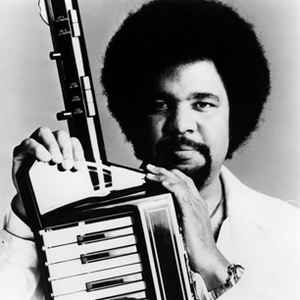 George Duke Photo: Echoes/Redferns Source: Julian Mihdi |
Born in 1946 in San Rafael, CA, jazz fusion keyboardist,
George Duke,
began training at piano at age seven at his Baptist church. He graduated
from San Francisco Conservatory in 1967 with a degree in composition and
trombone, minoring in contrabass (double bass). While there he issued his
debut vinyl on the LP: 'George Duke Quartet Presented by the Jazz Workshop',
in 1966. Doing session work after the conservatory, he wrote a letter to
Jean-Luc Ponty upon hearing
Ponty was to visit Los
Angeles that resulted in 'Electric Connection' with
Gerald Wilson's Big Band
in March of 1969. Titles toward 'Live at Donte's' were held the same month
before
Ponty's 'King Kong' composed
and arranged by
Frank Zappa. Sessions with
Wilson
resumed a few months later in June ('Eternal Equinox'), followed in
September by 'The Jean-Luc Ponty Experience' with the George Duke
Trio consisting of John Heard (bass) and Dick Berk (drums). Prior to that in
July and August of '69 Duke had contributed to
Zappa's 'Chunga's Revenge'. Eleven more
albums with
Zappa went down into the early eighties
to 'Them Or Us'
issued in '84. He surfaced as well on six future issues by
Zappa from that period to as late as
'Roxy by Proxy' in 2014, recorded in 1973. Two other major figures arrived
in August of 1971 in
Cannonball and Nat
Adderley for 'The Black Messiah'. The next several years found
Duke contributing to ten more albums by
Cannonball and/or Nat
to 'Lovers' in June of 1975. From
Flora Purim's debut LP, 'Butterfly Dreams',
gone down in December of 1973 to 'Midnight Sun' in 1988 Duke contributed to
nine of her LPs. Among the more important drummers to come Duke's way was
Billy Cobham, first supporting
the latter's 'Crosswinds' in January of 1974. 'Live on Tour in Europe' and
'Inner Conflicts' followed in 1976. They appeared on both volumes of 'Montreux
Summit' in 1977.
Cobham's 'Picture This' went
down ten years later in '87 in Italy. Come
Sonny Rollins in the latter seventies
for 'Nucleus' (September '75), 'Easy Living' (August '77) and 'Love at First
Sight' (May '80). Also working as a producer, he took charge of Raul De
Souza's 'Sweet Lucy' released in 1977. Among the numerous whom Duke would
produce over the decades were
Dionne Warwick and Dianne
Reeves. From Reeves',
third album, 'Dianne Reeves', in 1987 to 'Beautiful Life' issued in 2014
Duke contributed keys to six of her albums. Duke's first session with
saxophonist, Kirk Whalum, is thought to have been 'Killer Love' on Al Jarreau's
'Heart's Horizon' in 1988. He would later be involved with the first three
of four chapters of Whalum's 'The Gospel According to Jazz' in '98, '02 and
'10 (the fourth issued in 2015 without Duke). Chanté Moore's 'Precious'
arrived in '92, 'A Love Supreme' in '94 and 'Love the Woman' in '08. The new
millennium brought Duke a couple of Grammys, one for Best Jazz Vocal Album
in 2000 per Dianne Reeves' 'In the Moment: Live in Concert', two for Best
Jazz Vocal Album in 2001 per Dianne Reeves' 'The Calling: Celebrating Sarah
Vaughan'. Among numerous others to employ Duke along their paths were Quincy Jones,
Stanley Clarke,
Third World, Deniece Williams, Miles
Davis, Larisa Dolina and Lee Ritenour. Duke died of leukemia on August
5 of 2013 and was buried at Forest Lawn in Hollywood Hills [obits: 1,
2,
3,
4,
5,
6,
7]. Wikipedia has
Duke leading or co-leading 41 albums through 'Deja Vu' in 2010 and 'Dreamweaver' per 2013.
References: 1,
2,
3.
Discos: 1,
2,
3,
4,
5 (film & television),
6 (as producer),
7,
8,
9, Lord (leading 81 of 318 sessions).
IMDb.
Compilations: 'The Essential George Duke' (Legacy 516191 2 2004). Facebook.
Interviews: NPR 2002-08;
NAMM 2010;
UnderYourSkin 2010;
Jon Kirby 2011;
Jake Feinberg 2011: 1,
2;
Deardra Shuler 2012: 1,
2;
Jerry Kovarsky 2013;
dates unidentified: 1,
2.
Further reading: 1,
2.
Other profiles: *. George Duke 1966 From 'Presented by the Jazz Workshop 1966' Debut LP SABA SB 15 074 ST George Duke Quartet Bass Trumpet: David Simmons Bass: John Heard Drums: George Walker Music: Henry Mancini 1962 Lyrics: Johnny Mercer For the film 'Days of Wine and Roses' Music: Sammy Fain 1953 Lyrics: Paul Francis Webster For the film musical 'Calamity Jane' George Duke 1969 George Duke 1975 Composition: George Duke Album: 'The Aura Will Prevail' George Duke 1976 Filmed live Guitar: John ScofieldBass: Chapman Stick Drums: Billy Cobham George Duke 1979 Filmed live George Duke 1981 Composition: George Duke Album: 'The Clarke/Duke Project' Bass/guitar/sitar/cello: Stanley Clarke George Duke 1983 Filmed in Japan Bass: Louis Johnson Drums: Steve Ferrone Guitar: Paul Jackson George Duke 1995 George Duke 2008 Filmed live w Brian Brombergh George Duke 2010 Filmed live at the Java Jazz Festival Bass: Christian McBride Drums: Ronald Bruner Jr. Composition: George Duke Filmed live Duet with Greg Phillinganes Drums: Bob Wilson Composition: Duke/Phillinganes George Duke 2011 Filmed with Dira Sugandhi Composition: George Duke
|
|
|
Born in 1937 in Chicago, pianist, Narada
Burton Greene, arrived
in NYC in 1962 to form the Free Form Improvisation Ensemble (FFIE) with
bassist,
Alan Silva, the next year. He
joined the Jazz Composers Guild in 1964 but wouldn't appear on that
organization's album, 'Communication' in '65 (The Jazz Composer's Orchestra
for the Fontana label). In April of 1964 the FFIE recorded 'Eat Eat'. In
December it recorded parts 1 through 3 of 'Free Form Composition'. Those
were combined on an album with no confirmable release date before '98/'99 by
Cadence Historical Series (CJR 1094). Nigh an hour's worth of other
recordings were made by FFIE but those tapes are since buried somewhere if
not lost. In 1965 Greene was recorded on tracks that would be released in
2010 titled 'Live at the Woodstock Playhouse'. Performing with him on that
were
Marion Brown (alto sax), Reggie
Johnson (bass) and
Rashied Ali (drums). In December of 1965 Greene recorded
ESP 1024, 'Burton Greene Quartet' (also titled 'Bloom In the Commune').
Those tracks were 'Cluster Quartet', 'Ballade II', 'Bloom In the Commune'
and 'Taking It Out of the Ground', released the next year.
Henry Grimes
played bass on that. Other crew members were
Marion Brown
(alto sax), Frank Smith (tenor sax), Dave Grant (percussion) and Tom Price
(percussion). Also in 1966 Greene released 'Concert Tour'. As well, he
contributed that year to one untitled track (11 of disc 2) of
Albert Ayler's 'Holy Ghost' (released 2004). 1966 also found Greene on a
couple of albums by vocalist, Patty Waters: 'Sings' and 'College Tour' (that
tour funded by the New York State Council on the Arts). In 1969 Greene moved
to Paris, recording 'Aquariana' in France that year. He would eventually
settle in Amsterdam, revisiting the U.S. in 1998 to return six more times to
2010 per Lord's disco. In
the latter eighties Greene began exploring Klezmer, that is, the Jewish folk music of
Eastern Europe [1,
2,
3,
4,
5,
6,
7].
"Klezmer" is also Yiddish for Jewish musician, "klezmorim" the plural.
(Klezmorim is also the name of a prominent klezmer band having
no relation to Greene. Klezmorim had developed out of a duo formed in San
Francisco in 1974 by saxophonist, Lev Liberman, and violinist, David Skuse,
becoming the Sarajevo Folk Ensemble prior to rechristening as the Klezmorim
in early 1976. Refs below.) Albeitk klezmer was developed in the 19th century w klezmorim performing at
such as weddings, Merriam-Webster traces its first known usage as a term to
1908. Klezmer witnessed a large influx of klezmorim in the United States and
Israel due to Jewish immigration from Germany during and after the era of
World War II. Groups Greene formed along the vein of fusing klezmer with
jazz were Klezmokum [1,
2,
3], the Klez-thetics and Klez-Edge. Klezmokum
issued four albums from 'Klezmokum' recorded in '92 through
'Jew-Azzic Park'
in '94,
'ReJew-Venation'
in May 1998 and
'Le Dor Va Dor'
gone down on 4 June of 2000 in Amsterdam. Klezmokum also contributed 'El
Encalador' and 'Ire Moldavenese' to 'Klezmer Festival 1998' [1,
2]
in Dec 1998. It was Michael Moore at
clarinet for 'Klezmokum' in '92, Perry Robinson on all later issues.
Greene's group, Kles-Thetics, recorded 'Calistrophy' in Amsterdam in early 2002
w Akos Laki at clarinet and tenor sax, Larry Fishkind on tuba and Roberto
Haliffi at drums. Fishkind and Haliffi had been with the original
Klezmokum and remained members throughout. Greene's later group, Klez-Edge,
released 'Ancestors, Mindreles, Nagila Monsters' in 2008 [1,
2]
w Robinson back on clarinet and vocals by Marek Balata. Klez-Edge released
'The Struggle Can Be Enobling' [*]
as recently as 2016 w Alex Coke at sax and flute, Fishkind and Hallifi
constant throughout. Greene's projects in the new millennium apart from
klezmer include the publishing of his autobiography, 'Memoirs of a Musical
Pesty Mystic', in 2001 by Cadence Jazz Books. 'Retrospective 1961-2005: Solo
Piano' went down at Gilbert Recital Hall in Canton, NJ, on 18 August of
2005. Other piano solo works were 'European Heritage' in '78, 'Solo
Orchestra in Real Time' in '89, 'Shades of Greene' in '92 and 'Live at Kerrytown
House' in 2010. Duos include
'Mountains' with Tom Moore on flute and cello in 1969 and 'The Ongoing
Strings' with bassist,
Alan Silva, in 1981. A suite of duets w Klezmokum
comrade, Perry Robinson, appeared in
2009 titled 'Two Voices in the Desert' [1,
2,
3]. Among trios
were 'On Tour' in 1966 in New York, 'Structures - The N.B.G. Trio Live' in
1978 in Netherlands, 'East-West Trio' in 1980 in Belgium, 'Throptics' in
1998 in New York and 'Ins and Outs' in 2005 in New York. Recent among well
above sixty albums issued by Greene were 'Space Is Still the Place' and
'Free Form Improvisation Ensemble 2013', both recorded in 2013, issued in 2015.
'Flower Stalk' had also been released in 2015 w the Open Field Trio.
'Compendium: Solos Duos Trios' arrived in 2017
w flute by Tilo Baumheier, double bass by Stefan Raidl and drums by Roberto
Haliffi. 'Life's Intense Mystery' [*]
was assisted on 7 October 2017 by Damon Smith at double bass and Ra-Kalam
Bob Moses at drums. Greene's most recent release as of this writing, 'Magic
Intensity' [1,
2,
3,
4,
5],
went down in Weesp, Holland, on 19 April of 2019 w Guillaume Gargaud at
guitar and Tilo Baumheier contributing flute. References:
1,
2,
3,
4,
5.
Discos: 1,
2,
3,
4, Lord (leading 50 of 76 sessions).
Piano solos YouTube.
Reviews at Forced Exposure: 1,
2.
Facebook.
Interviews: Dan Warburton 2003,
Clifford Allen 2004.
Other profiles: *.
Further reading Greene: Lyn Horton.
Further reading klezmer: BBC;
Josh Horowitz;
Klezmer Guide;
'The Essential Klezmer' by Seth Rogovoy (Algonquin Books 2000).
Further reading the Klezmorim (major klezmer band formed in 1975-76 w no
relation to Greene): 1,
2,
3,
4. Burton Greene 1964 From 'The Free Form Improvisation Ensemble' Recorded 3 April & 30 Dec 1964 NYC Issued on Cadence Jazz CJR 1094 in 1998 Alto sax: Gary William Friedman Double bass: Alan Silva Flute: Jon Winter Percussion: Clarence Walker Composition: improvisation Burton Greene 1966 Album: 'Burton Greene Quartet' All comps Burton Greene Burton Greene 1969 Album: 'Aquariana' All comps Burton Greene Burton Greene 1973 Bongos: Daoud Amin All comps Burton Greene Note: 'Variations on Darbari Kanada' is derived from a theme by Indian musician, Jamaluddin Bhartiya, per Discogs. 'Darbari Kanada' is also known as 'Raga Kanada' in Hindustani classical music, brought to the court of Akbar the Great by composer, Miyan Tansen, sometime in the 16th century, Burton Greene 1984 Burton Greene 2004 Piano solo filmed live Burton Greene 2007 Live at S-P-A-C-E Gallery NYC Piano solos recorded 14 July 2007 Composition: Burton Greene/Jon Winter Composition: Burton Greene/Silke (Syl) Röllig Composition: Silke (Syl) Röllig Composition: Burton Greene/Jon Winter Burton Greene 2009 Film with Alan Silva Burton Greene 2010 Filmed live Burton Greene 2012 From 'Parallel Worlds' Keyboard duets w Alan Silva Recorded 28 & 31 Aug 2008 Ruaudin, France All comps Burton Greene/Alan Silva North American Indian Reflections Burton Greene 2013 Filmed live at Berkeley Arts Piano solos recorded 24 April 2013
Composition: Burton Greene Composition: Enrico Pieranunzi/Burton Greene Composition: Shorty Rogers/Burton Greene Burton Greene 2014 Filmed live with Silke Röllig Composition: Burton Greene Burton Greene 2019 Album: 'Magic Intensity' Guitar: Guillaume Gargaud
|
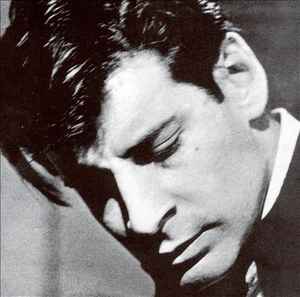 Burton Greene Source: All Music |
|
|
Born in 1940 in Richmond, Virginia, pianist/keyboardist,
Lonnie Liston Smith,
can easily be confused with
Dr Lonnie Smith, the usually
turbaned Hammond B3 organist who began his recording career at roughly the
same time [comparison;
see also the
Doctor v
Liston]. Smith received his bachelor's in music education from Morgan State
University in Baltimore, Maryland. While there a student he began performing
with such as
Gary Bartz, Micky Bass,
Betty Carter and
Grachan Moncur III.
Bartz and Smith would later
record together on a few occasions. Upon
graduation Smith headed for NYC, gigging with such as
Carter and
Joe Williams until joining
Art Blakey's Jazz Messengers for
three gigs at the Village Vanguard, then filling a spot in the band of drummer,
Max Roach. In March of '65 Smith recorded with the
Roland Kirk Quartet for the issue
of 'Here Comes the Whistleman' that year. Come
Kirk's 'Now Please Don't You Cry,
Beautiful Edith' on May 2 of 1967. Smith's first session for
Pharoah Sanders was on
January 14 of 1969 toward 'Izipho Zam (My Gifts)'. 'Karma' ensued on
February 14, 'Jewels of Thought'' in October 20 of '69. 1970 brought 'Summun
Bakmun Umyum' on July 11, 'Thembi' on November 25. In the meantime Smith had
participated in
Gato Barbieri's 'Cancion' in
November of '69. 'Fenix', 'Under Fire' and 'El Pampero' came about in 1971.
'Live In Buenos Ayres, 1971' was issued in Italy in 1976. 'Bolivia' went
down in 1973. In the midst of sessions between
Sanders and
Barbieri had come titles for
Leon Thomas,
Stanley Turrentine,
Sonny Simmons and Miles
Davis. Smith formed the Cosmic Echoes to release 'Astral Treveling' in
1973, followed by 'Cosmic Funk' in the next year. Twelve LPs were recorded
by Cosmic Echoes until its dissolution in 1985, wrapping it up with
'Rejuvenation' in February of 1985. In the meantime Smith had held a session
in 1980 at the Montreux Jazz Festival with
Marvin Gaye. Come October 27 of
1986 for a trio with
Cecil McBee (bass) and
Al Foster (drums) resulting in
'Make Someone Happy'. Smith's 'Love Goddess' followed in 1990, 'Magic Lady'
in 1991, 'Transformation' in 1998. The latter is thought to have been
recorded per the formation of his own label, Loveland, to be distributed by
Ichiban International. In the meantime Smith had collaborated on 'The Other
Page' in December of 1990 with guitarist, Nathan Page (b 1937). As well, Smith is one of the few musicians on this page who involved
himself with hip hop, having supported Guru's 'Jazzmatazz' released in 1993.
Donald Byrd also contributed to
that. Into the new millennium compositions by Smith have found
their way onto video games such as 'Grand Theft Auto'. In 2002 he emerged on
Karl Denson's 'The Bridge'. Smith has kept busy
in the 21st century touring internationally in Europe and Japan, as well as
holding workshops. References: 1,
2,
3,
4,
5,
6.
Discographies: 45Cat,
Discogs, Lord,
RYM.
Videos: live performances.
2018 interview w Markus Schmidt & Don Harrison.
Further reading: Jim Newsom.
Other profiles: SoulWalking.
Per below, credits for Lonnie Liston Smith Jr. are rendered as LL Smith. Per 1965, more 'Here Comes the Whistleman' under
Rahsaan Roland Kirk. Lonnie Liston Smith 1965 With Roland Kirk Composition: Roland Kirk LP: 'Here Comes the Whistleman' Lonnie Liston Smith 1969 With Pharoah Sanders LP: 'Jewels of Thought' Composition: Sanders/LL Smith Lonnie Liston Smith 1971 Composition: LL Smith Pharoah Sanders LP: 'Thembi' Composition: Atahualpa Yupanqui Gato Barbieri LP: 'Fenix' Composition: Geraldo Pereira Gato Barbieri LP: 'Fenix' Composition: Sanders/LL Smith Pharoah Sanders LP: 'Thembi' Lonnie Liston Smith 1973 Album All composition: LL Smith Lonnie Liston Smith 1974 Composition: LL Smith LP: 'Cosmic Funk' Composition: James Mtume LP: 'Cosmic Funk' Lonnie Liston Smith 1975 Composition: LL Smith LP: 'Expansions' Lonnie Liston Smith 1977 Album Composition: LL Smith LP: 'Renaissance' Lonnie Liston Smith 1978 Composition: LL Smith LP: 'Loveland' Lonnie Liston Smith 1984 From 'Silhouettes' Composition: Davitt Sigerson/Bob Thiele Composition: Tom Barney LP: 'Silhouettes' Composition: LL Smith LP: 'Silhouettes' Lonnie Liston Smith 1998 Composition: Gary Grainger/LL Smith LP: 'Transformation' All other compositions: LL Smith
|
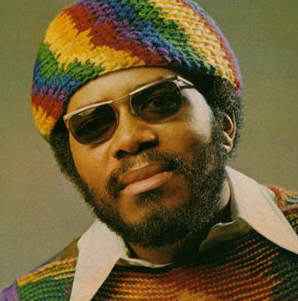 Lonnie Liston Smith Source: All Music |
|
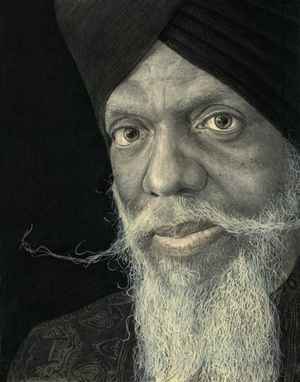 Dr Lonnie Smith Source: Hammond Organ |
Born in 1942 in Lackawanna, New York, Hammond B3 organist,
Dr Lonnie Smith,
is easy to confuse with
Lonnie Liston Smith in
print, they both keyboardists who began their careers about the same time in
New York [comparison;
see also the
Doctor v
Liston]. The more bearded Doctor
played only Hammond B3 and began wearing a Sikh turban in '75 or '76. He
began referring to himself as Doctor in the latter seventies, though didn't
appear on albums as such until the nineties. Associates had begun calling
him the Doctor due to his improvisational "doctoring" during performances.
One example of such is 'My Favorite Things' below, improvised to degree that
one barely recognizes it. Smith received his flair for music from his mother, she presenting him
gospel, classical and jazz. During the fifties he
sang in vocal groups, also receiving his first organ as a gift from one Art Kubera, the owner of a music store. Smith first played professionally in
Buffalo at the Pine Grill. He there met guitarist,
George Benson, whose
quartet he joined, leaving for NYC. Lord's disco has Smith with
Benson on an unknown date in 1962
for 'Godchild'. That would see issue on 'I Giganti Del Jazz 72' and 'Los
Grandes Del Jazz 72' in 1981.
Benson and Smith were present in
Red Holloway's quintet for sessions in December of 1965 resulting in
Holloway's 'Red Soul' released
in 1966. Smith also participated in
Benson's albums, 'It's
Uptown' and 'Cookbook' in '66.
Benson was a part of Smith's crew on
the latter's debut album, 'Finger Lickin' Good', gone down in 1966.
Trumpeter,
Blue Mitchell, was in on that.
Benson later supported Smith's 'Live
at Club Mozambique' in 1970 and 'When the Night Is Right!' in 1979.
Benson had been with Smith in April
of '67 for
Lou Donaldson's 'Alligator Boogaloo'.
Three albums later it was
Donaldson's 'Pretty Things'. Several
unissued tracks went down in 1975 quite preceding 'Play the Right Thing' in
December of 1990. Three albums later it was
Donaldson's 'Relaxing at Sea - Live
on the QE2' in November of 1999. Slipping back to the sixties, Smith recorded 'Think!' in July of '68. 'Turning Point' and 'Move Your Hand'
followed in '69. The seventies commenced with sessions in January for
'Drives', a decade during which Smith focused on venues in the Northeast.
Smith had emerged on four of Javon Jackson's albums from 'A Look Within' in
1996 to 'Now' in February of 2006. Amidst the host on whose recordings he
can be found are
Charles Earland, Jimmy
Ponder,
Jimmy McGriff, The
Chartbusters, Ron Holloway, The Essence All Stars and Frode Kjekstad. Among
numerous awards, Smith has been consecutively named
Organist/Keyboardist of the Year by the Jazz Journalist Association from
2003 to 2014. Having released about thirty albums, 'Evolution' arrived in
2016, recorded in March the year before [reviews: 1,
2,
3]. He was named an NEA Jazz Master
in 2017. Come 'All in My Mind' in 2018 w a trio filled by Jonathan Kreisberg
(guitar) and Johnathan Blake (drums) [reviews: 1,
2,
3]. As for the Sikh turbans Smith wears,
there's no religious significance: he simply likes turbans. Smith is yet
active and on tour as of this writing.
References: 1,
2,
3.
Sessions: Lord; Payne.
Catalogs: 1,
2,
3,
4.
Videos: live performances.
Method: 1,
2.
Interviews: Joe Zupan 2004,
'Vrije Geluiden' 2007,
NAMM 2012,
Chicago Jazz 2017,
Jon Regen 2017. Further reading:
Brooklyn Bowl,
Mikayla Gilbreath,
Terrell Kent Holmes,
Bill Milkowski,
Ted Panken,
Jon Solomon.
See also booking-management-press-social media: *.
Lonnie Smith 1966 Composition: George Benson Red Holloway LP: 'Red Soul' LP by George Benson Composition: George Benson Red Holloway LP: 'Red Soul' Lonnie Smith 1967 Composition: Lonnie Smith LP: 'Finger Lickin' Good' Lonnie Smith 1970 Composition: David Clayton-Thomas LP: 'Drives' Composition: Lonnie Smith LP: 'Drives' Lonnie Smith 1971 Composition: Lonnie Smith LP: 'Mama Wailer' Lonnie Smith 1975 LP: 'Afro-Desia' All ompositions: Lonnie Smith Lonnie Smith 1977 Album Lonnie Smith 1978 Composition: Lonnie Smith LP: 'Gotcha'' Lonnie Smith 1999 Live at the Smoke Jazz Club NYC Sax: Ronnie Cuber Guitar: George Benson Drums: Joe Farnsworth Lonnie Smith 2003 Composition: John King/Michael Simpson LP: 'Boogaloo to Beck: A Tribute' Lonnie Smith 2004 Concert filmed in Paris Lonnie Smith 2007 Filmed live Composition: Harold Mabern Filmed live Guitar: Jonathan Kreisberg Drums: Kendrick Scott Music: Richard Rodgers 1959 Lyrics: Oscar Hammerstein II Lonnie Smith 2008 Guitar: Greg Skaff Drums: Herlin Riley Bridgestone Music Festival São Paulo Music: Juan Tizol/Duke Ellington 1936 Lyrics: Irving Mills Lonnie Smith 2012 Composition: Lonnie Smith LP: 'The Healer' Lonnie Smith 2013 Filmed concert Drums: Joe Dyson Guitar: Jonathan Kreisberg With the Jazzinvaders Filmed in Rotterdam, Netherlands Lonnie Smith 2015 Filmed live Drums: Johnathan Blake Guitar: Jonathan Kreisberg
|
|
|
Born in 1940 in Harlem, pianist,
Larry Willis,
studied at the Manhattan School of Music before signing up with saxophonist,
Jackie McLean. It was
McLean with whom Willis first emerged
on vinyl in 1966 on the album, 'Right Now!', recorded in January of '65.
Hugh Masekela's 'GRRR' went down
in April and May for issue in '66. McClean's 'Jacknife' was sessioned in
September toward issue in 1975. 'The Americanization of Ooga Booga' and 'The
Lasting Impressions of Hugh Masakela' were recorded live at the Village
Vanguard in NYC in November for release in '66. Willis wrapped up '65 with
Lee Morgan's 'infinity' in
November toward issue in '81. Willis' first of above 20
LPs as a leader was 'A New Kind Of Soul' in 1970. He was performing with
Cannonball Adderley in the
early seventies when he joined
Blood Sweat & Tears for the
next seven years. He was afterward a member of Jerry Gonzalez' Fort Apache.
Willis had contributed to seven of that group's albums from 'Obatala' at the
International Jazz Festival in Zurich, Switzerland, on November 6, 1988, to
'Rumba Buhaina' in 2005. Having appeared as a sideman on more than 300
albums, Willis' own latest release was in 2012: 'This Time the Dream's on
Me'. Among earlier albums were his solo
suites of '92: 'Solo Spirit' and 'Unforgettable'. Come 'Sunshower' in 2001
among albums issued in the early new millennium. A decade later Willis was the recipient of the Don Redman
Award in 2011 prior to the
Benny Golson Jazz Master Award at
Howard University in 2012. More recent recordings include 'Search for Peace' with Heads of State in January of 2015.
That quartet was comprised of
Gary Bartz (sax),
Buster Williams (bass) and
Al Foster (drums), each with whom
Willis had recorded on multiple occasions for above forty years.
Bartz had been in Willis' trio
with
Cecil McBee in December 1991 for
'Steal Away'.
Williams had been in Willis'
trio with
Foster in May 2005 for 'The Big
Push'.
Foster had backed Willis' debut LP, 'A New Kind of Soul' in 1970,
'Inner Crisis' in 1973 and 'My Funny Valentine' in 1988. Heads of State
released 'Four in One'
in 2017 now with David Williams at bass. That had gone down in NYC on 1
November 2016. An unidentified date in 2017 saw Willis contributing to
saxophonist, Jay Rodriguez', 'Your Sound: Live at Dizzy's Club Coca-Cola'
toward issue in 2018
*.
Tom Lord traces Willis to as late as 16 Jan 2017 in NYC toward trombonist, Steve Davis',
'Think Ahead' issued that year
*. Willis died in Baltimore on 29 Sep 2019 [obits:
1,
2,
3,
4,
5,
6]. Among the host of
others on whose recordings Willis can be found are Nat
Adderley,
Herb Alpert,
Woody Shaw, Steve Berrios,
Ron Holloway and Little Jimmy Scott. References: 1,
2.
Discos: 1,
2,
3,
4,
Lord (leading 22 of 179 sessions).
IMDb.
Interviews:
Marian McPartland 2007;
Russ Musto 2010. Larry Willis 1966 From Jackie McLean's 'Right Now!' Alto sax: Jackie McLean Bass: Bob Cranshaw Drums: Clifford Jarvis Composition: Larry Willis Composition: Charles Tolliver Larry Willis 1970 Composition: Larry Willis Album: 'A New Kind of Soul' Larry Willis 1974 Album All comps by Larry Willis Larry Willis 1988 Music: Richard Rodgers 1937 Lyrics: Lorenz Hart For the musical 'Babes in Arms' Album: 'My Funny Valentine' Alto sax: Kenny Garrett Bass: George Mraz Drums: Al Foster Larry Willis 1994 Composition: Herbie Hancock Larry Willis 1998 Filmed live at the North Sea Jazz Festival Trumpet: Roy Hargrove Composition: Larry Willis Larry Willis 2011 Solo filmed live Larry Willis 2013 Filmed live with Hugh Masekela Composition: Thom Bell/Linda Creed Larry Willis 2014 Filmed live
|
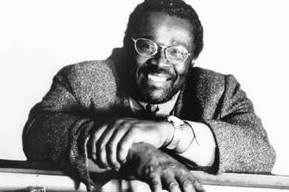 Larry Willis Source: Latin Jazz Corner |
|
|
Born in 1941 in Toledo, Ohio, pianist,
Stanley Cowell,
studied at Oberlin Conservatory of Music in Ohio where he had opportunity to
play with
Roland Kirk. In 1965 he
worked with the Detroit Artist's Workshop Jazz Ensemble until leaving for
NYC in 1966. He there hooked up with
Marion Brown, appearing on
Brown's 'Three for Shepp' in
1967. He also surfaced on
Brown's 'Why Not' in 1968. He
joined the
Max Roach Quintet at the Newport
Jazz Festival in 1967. Included in that was trumpeter,
Charles Tolliver, with whom
he would record numerously into the seventies. Cowell supported six of
Tolliver's albums from 'The
Ringer' in '69 to 'Impact' in '75. They founded Strata-East Records together
in 1971 [*].
A quarter century later in June of 2006 Cowell
contributed to 'With Love' in the
Charles Tolliver Big Band.
He joined that orchestra again in 2008 for 'Emperor March: Live at the
Blue Note'. Returning to Cowell's earlier career at the time of
Roach, he supported vibraphonist,
Bobby Hutcherson's,
'Patterns' on March 14 of '68.
Gary Bartz' 'Another Earth' was
laid out on June 25. That same date saw
Roach's 'Members Don't Git Weary'.
November 25 witnessed
Hutcherson's 'Spiral.
Cowell wrapped up 1968 with
Jack DeJohnette's 'The
DeJohnette Complex' in December. Titles in early 1969 followed with
Stan Getz before 'The Ringer' per above
with
Tolliver in London on June
2, 1969. June 5 and 6 in London witnessed the recording of Cowell's debut
LP, 'Blues for the Viet Cong', w Steve Novosel (bass) and Jimmy Hopps
(drums). It was
Hutcherson again in
NYC on 25 Sep 1969 toward Cowell's second LP, 'Brilliant Circles' [1,
2],
w Tyrone Washington (tenor sax/ flute/ clarinet/ maracas/ tambourine),
Woody Shaw (trumpet/ maracas), Reggie Workman (bass) and Joe Chambers (drums).
His third LP, 'Illusion Suite', arrived on 29 Nov 1972 in NYC with
Stanley Clarke on bass and
Jimmy Hopps on drums. Cowell toured to Oslo, Norway, in October of 1975 with
the Heath Brothers consisting of
Percy (bass),
Albert (drums) and
Jimmy (sax) for 'Marchin' On'. Seven
more albums with the Heath Brothers followed to as late as February of 1997
for 'As We Were Saying ...'. Cowell largely exchanged performing for
teaching upon joining the staff at CUNY’s Lehman College in 1981 where he
instructed until 1999 [*]. The 'New York Times' has him teaching at Rutgers
in New Jersey for thirty-three years from which he retired in 2013 per 'Jazz
Times'. (If Cowell began instructing in 1981 at CUNY before joining
the faculty at Rutgers then it wasn't quite 33 years.) Cowell had also taught the 1988-89 semesters at the New
England Conservatory, Boston. However, living as a college professor hardly
put an end to Cowell's independent recording career. Highlighting the
nineties was 'Games' [1,
2]
recorded in Copenhagen in 1991 w Cheyney Thomas at bass and Wardell Thomas
on drums. Into the new millennium arrived such as 'Death Is
This Communion' in 2007, 'Juneteenth' in 2015 and 'Reminiscent' the next
year. Cowell's most
recent issue as of this writing was 'No Illusions' in 2017 w Bruce Williams
(alto sax/ flute), Jay Anderson (bass) and Billy Drummond (drums). Having
led about thirty-four albums, four of those were suites for solo piano:
'Musa: Ancestral Streams' (issued '74), 'Waiting for the Moment' ('77),
'Live at Maybeck Recital Hall, Volume Five' ('90) and 'Angel Eyes' ('94). Among the numerous
others with whom Cowell had recorded were
Johnny Griffin,
Art Pepper and
Roy Haynes. References: 1,
2,
3,
4,
5,
6.
Sessions: JDP; Lord (leading 40 of 146).
Discos: 1,
2,
3,
4.
Interviews:
Marian McPartland 1999;
unidentified 2015;
Jake Feinberg 2015.
Further reading: Kofi Natambu;
neverenoughrhodes;
Michael West.
Bibliography: 'Jazz Notes: Interviews Across the Generations' by Sanford Josephson
(ABC-CLIO 2009) *. Per 1973 below, tracks are from 'Illusion
Suite' with
Stanley Clarke on bass and
Jimmy Hopps on drums. Stanley Cowell 1967 From Marion Brown's 'Three for Shepp' Alto sax: Marion Brown Composition: Archie Shepp Stanley Cowell 1969 Composition: Cowell Debut LP: 'Blues for the Viet Cong' Stanley Cowell 1973 From 'Illusion Suite' Bass: Stanley Clarke Drums: Jimmy Hopps All compositions Cowell Stanley Cowell 1974 Solo LP All compositions Cowell Stanley Cowell 1977 Composition: Cowell Solo LP: 'Waiting for the Moment' Album: 'Talkin' 'Bout Love' Thumb piano: Stanley Cowell Stanley Cowell 1978 Composition: Cowell Album: 'Equipoise' Bass: Cecil McBee Drums: Roy Haynes Stanley Cowell 1981 Stanley Cowell 1989 Composition: Cowell Album: 'Back to the Beautiful' Stanley Cowell 2014 Filmed live Stanley Cowell 2017 Composition: Cowell Album: 'No Illusions'
|
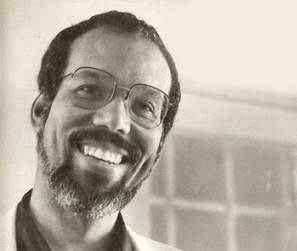 Stanley Cowell Source: ABC Jazz |
|
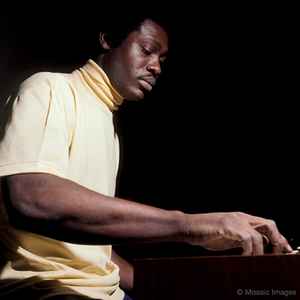 Reuben Wilson Photo: Mosaic Images Source: Blue Note |
Born in 1935 in Mounds, OK, Hammond B3 organist,
Reuben Wilson,
was raised in Pasadena, CA. He began to teach himself piano as a teenager,
but was a macho sort as well, taking up boxing and even sparring with Floyd
Patterson. He appeared in the film, 'Carmen Jones', about that time. At
seventeen he moved not far away to Los Angeles where he began singing and
playing organ in clubs. In December of '66 he headed to NYC and put together
a band called the Wildare Express with drummer, Tommy Derrick, that group
releasing its first tracks for Brunswick in 1967: 'Dead End Street'/'Why Do
You Treat Me So Bad'. Wildare Express was brief existing, though an album
was later released in 1970 titled 'Walk On By'. Wilson's first recordings
for the Blue Note label in August of '68 went unissued. His next in October
were released as 'On Broadway' that year. It was 21 March of '69 when his
album, 'Love Bug' [1,
2],
went down w assistance from George Coleman (tenor sax),
Lee Morgan
(trumpet),
Grant Green (guitar) and Lee Morris (drums). 'Blue Mode' [1,
2]
was recorded in Englewood Cliffs, New Jersey, as well, on 12 Dec 1969 as a
quartet filled by John Manning (tenor sax),
Melvin Sparks (guitar)
and Tommy Derrick (drums). Wilson's last LP for Blue Note was 'Set
Us Free' in 1971, moving onward to the Groove Merchant label. Wilson retired
from the music industry during the eighties. He had last appeared on
George Benson's 'Erotic Moods' in
1978, that with
Benson's Harlem Underground Band.
Wilson's own last album had been 'Got to Get Your Own' with his band, the
Cost Of Living, issued in 1975. Resuming his career upon a revived
interest in his music in the nineties, Lord's disco has his reentry titles
with tenor saxophonist, Nat Dixon, for such as 'Nat's Blues', 'My Foolish
Heart, et al. Lord's has those issued on an obscure CD on an unknown date
per Sax-Rack SR1027. Wilson recorded another version of 'Love Bug' in '95 for issue on the
album by various, 'Blue Note Now as Then' in '98. It was also 1995 that Wilson
began touring with rap musician, Guru. Into the new millennium Wilson
recorded four albums
with Bernard Purdie and Grant Green Jr. (son of
Grant Green) in the trios, the Masters
of Groove and the
Godfathers of Groove. Others on whose recordings Wilson can be found are the
New York Funkies, the Essence All Stars,
Melvin Sparks and Danny
Draher. Having released some seventeen albums, among Wilson's latest were 'Azure Te' in 2009
and 'Revisited' in 2011. Currently residing in NYC, Wilson yet tours
internationally. References: 1,
2.
Discographies: 1,
2,
3,
4,
5,
6, Lord (leading 24 of 36 sessions). The Wildare Express 1967 Composition: Ben Raleigh Composition: Roebuck Staples The Wildare Express 1968 Composition: Percy Mayfield Reuben Wilson 1968 From debut LP 'On Broadway' Tenor sax: Trevor Lawrence Guitar: Malcolm Riddick Drums: Tommy Derrick Composition: Nat Simon/Buddy Bernier Composition: Reuben Wilson Reuben Wilson 1969 From 'Blue Mode' Tenor sax: John Manning Guitar: Melvin Sparks Drums: Tommy Derrick Composition: Melvin Sparks Composition: Reuben Wilson Composition: Reuben Wilson Reuben Wilson 1972 Composition: Marvin Gaye/James Nyx Jr. LP: 'The Sweet Life' Reuben Wilson 1974 LP: 'The Cisco Kid' Reuben Wilson 1975 Composition: Esmond Edwards/Reuben Wilson Composition: Rueben Wilson/Tommy Derrick Reuben Wilson 1998 Composition: Reuben Wilson Reuben Wilson 2005 Composition: Mike Clark LP: 'Fun House' Tenor sax: Cochemea Gastelum Guitar: Melvin Sparks Drums: Mike Clark
|
|
 Leon Spencer Source: Soul Unlimited |
Born in 1945 in Houston, pianist and organist,
Leon Spencer
(Leon Spencer Jr.),
pursued but a brief career of several years before becoming obscure. He's an
apt illustration, however, of soul jazz and acid (funk) jazz in the early seventies. He is
thought to have surfaced on vinyl for the first time in 1969 on
Wilbert Longmire's 'Revolution', that recorded in Hollywood at Liberty Studios for
World Pacific. They later joined saxophonist,
Rusty Bryant, on February 22, 1971,
for the latter's 'Fire Eater'. Though Spencer's was a short career he appeared on
three
albums each by
Lou Donaldson,
Melvin Sparks and
Sonny Stitt. He himself issued a
total of four albums as a leader: 'Sneak Preview!' ('71) [1,
2], 'Louisiana Slim'
('71) [1,
2], 'Bad Walking Woman' ('72)
[*] and 'Where I'm Coming From' ('73)
[*]. His last
recordings are thought to been released on
Longmire's 'This Side of
Heaven' in 1976 before disappearing into obscurity. He did bob up years
later on several tracks (1, 4, 7-9) of Karl Denson's 'Dance Lesson #2' in
2001, only to undertow again until his death on March 11 of 2012.
References: 1,
2.
Discos: 1,
2,
3,
4. Leon Spencer 1969 Composition: Paul Simon-Art Garfunkel Wilbert Longmire LP: 'Revolution' Guitars: Cal Green/Wilbert Longmire Leon Spencer 1971 From 'Sneak Preview!' Recorded 7 Dec 1970 Composition: Spencer Composition: Spencer LP recorded 7 July 1971 Leon Spencer 1972 LP recorded 22 Feb 1972 Leon Spencer 1973 From 'Where I'm Coming From' Recorded 22 Feb 1972 & 26 Jan 1973 Composition: Stevie Wonder Composition: Spencer Leon Spencer 1976 Wilbert Longmire LP: 'This Side of Heaven' Guitar: Wilbert Longmire Leon Spencer 2001 Karl Denson LP: 'Dance Lesson #2' Sax/flute: Karl Denson
|
|
|
|
We end this history of modern jazz keyboard musicians in the United States from 1960 to 1970 with Leon Spencer. |
|
Early Blues 2: Vocal - Other Instruments
Modern Blues 2: Vocal - Other Instruments
Romantic: Composers born 1770 to 1840
Modern: Composers born 1900 to 1950
Early Jazz 1: Ragtime - Bands - Horn
Early Jazz 2: Ragtime - Other Instrumentation
Modern 4: Guitar - Other String
Modern 5: Percussion - Other Orchestration
Modern 7: Latin Jazz - Latin Recording
Modern 8: United States 1960 - 1970
Modern 9: International 1960 - 1970
Latin
Latin Recording 2: The Caribbean
Latin Recording 3: South America
Total War - Sixties American Rock
Classical - Medieval to Renaissance
Classical - Baroque to Classical
Classical - Romantic to Modern
Jazz Early - Ragtime - Swing Jazz
Jazz Modern- Percussion - Latin - Song - Other
Boogie Woogie - Doo Wop - R&B - Rock & Roll - Soul - Disco
Sixties American Rock - Popular
![]()
vfssmail (at) gmaill (dot) com